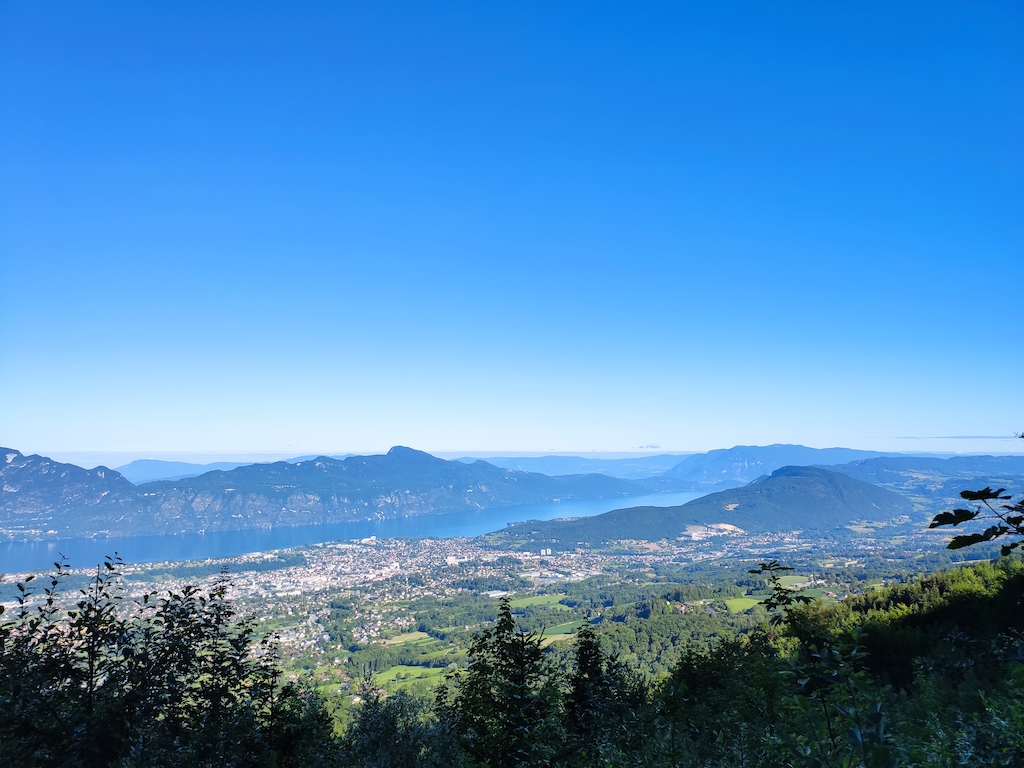

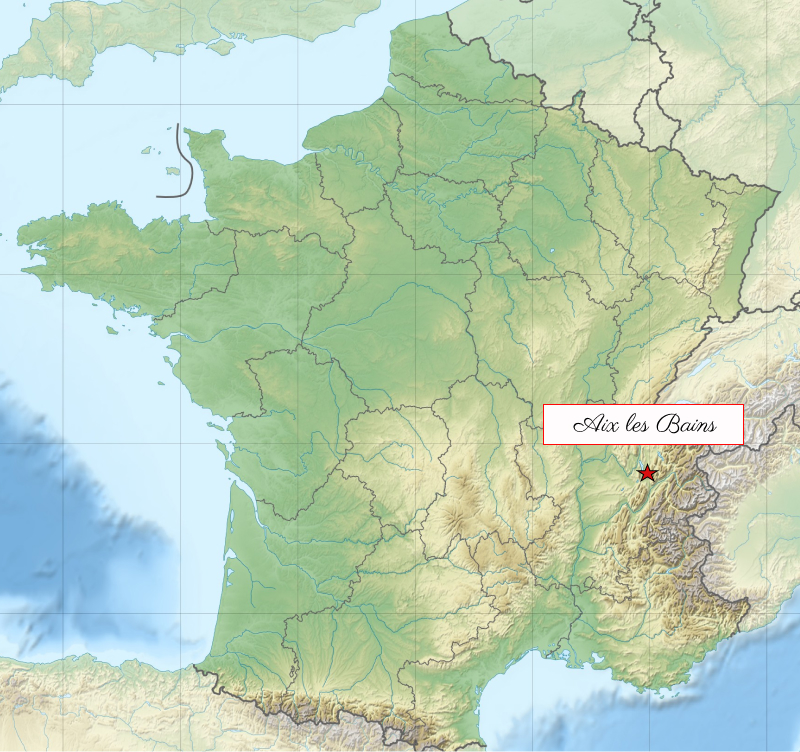

Aix-les-Bains is located in the department of Savoie, in the southeastern French region of Auvergne-Rhône-Alpes.
I lived for several years in Aix-les-Bains. It’s the last city I stayed in before leaving for London. And yet, I had never really taken the time to discover it. I’d noticed beautiful palaces that indicated that the town had had a great history, some clues about a Queen who had contributed to the city’s notoriety. So I went back to the past of Aix-les-Bains, and I will share it with you today.
Aix-les-Bains is known for its hydrotherapy. Indeed, the 4th thermal town in France welcomes patients for medical treatments.
But Aix-les-Bains also has its lake, Bourget lake, and the Alps and Jura mountains surrounding it and allow an incredible choice of activities.
Hiking, mountain biking, climbing, canyoning, kite surfing, fishing, canoeing, boat rental… but also moments of relaxation on the beach and walks along the lake’s esplanade, without forgetting the pedestrian city center where it is great to stroll to discover shops and good restaurants.
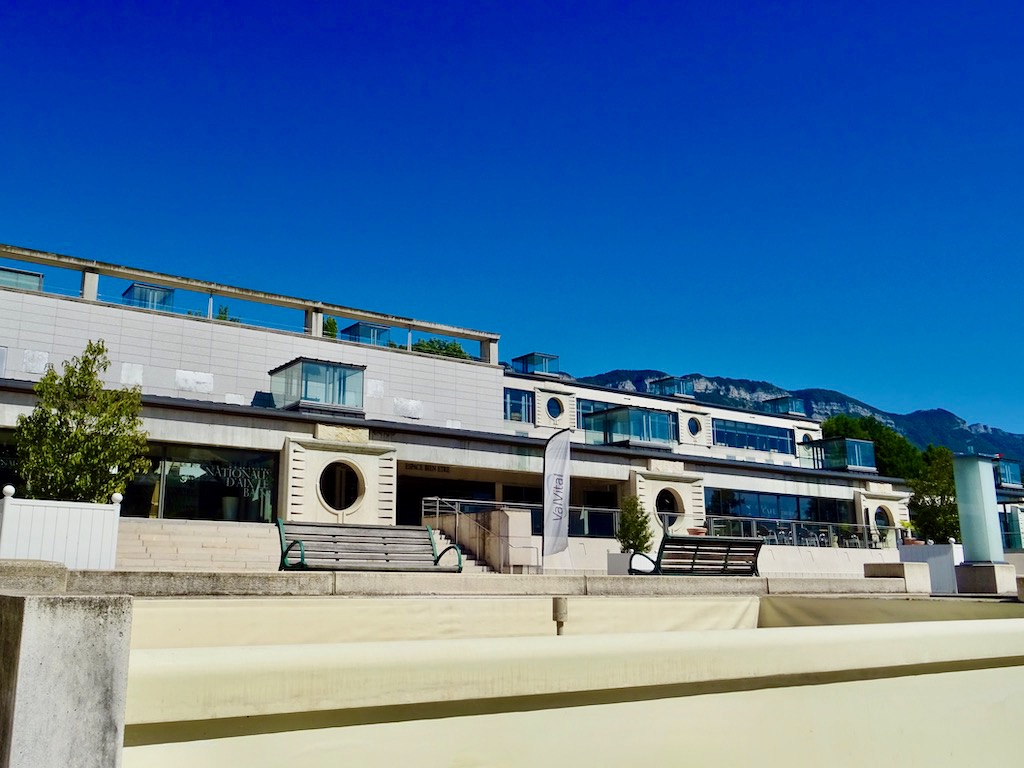

The tourist resort is also dedicated to well-being and offers packages to recharge one’s batteries and relax in balneotherapy centers.
As we will discover during this visit, the virtues of this hot spring water will attract many people.
The discovery of Aix-les-Bains
We started our visit with the Ancient Thermal Baths or Pétriaux Thermal Baths, named after the architect who led their expansion work between 1932 and 1934.
Discover its Art Deco hall
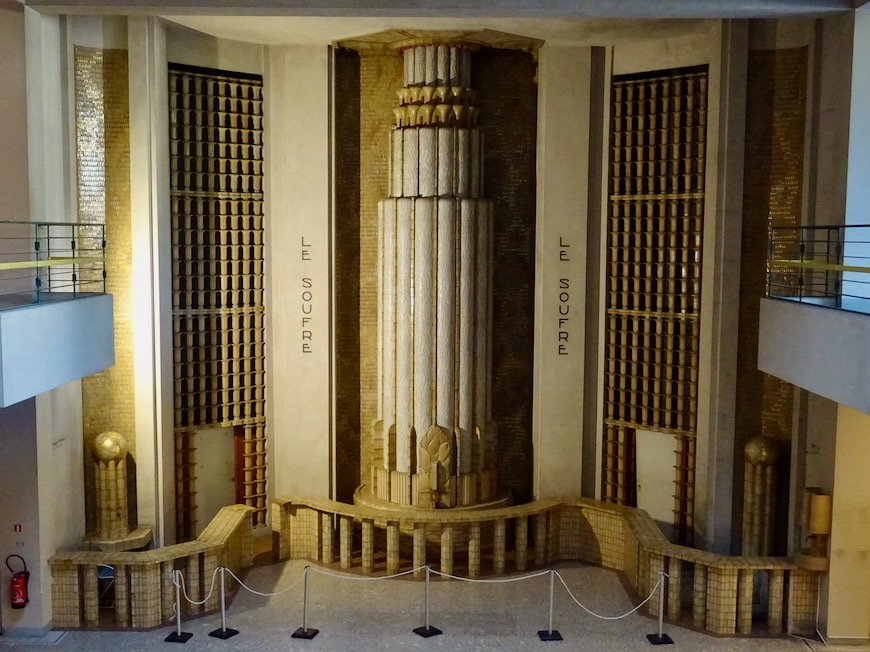

The large wall houses the old “refreshment bar.” It was made of ceramic and decorated with mosaics. These decorations and the droplet-shaped tesserae evoke the flow of spring water.
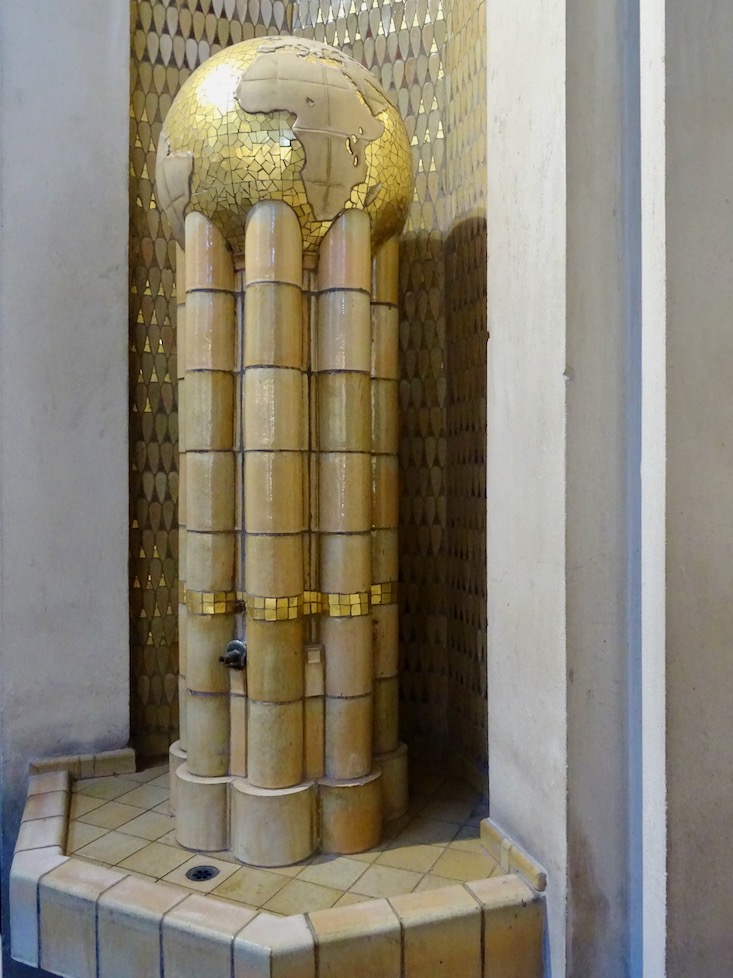

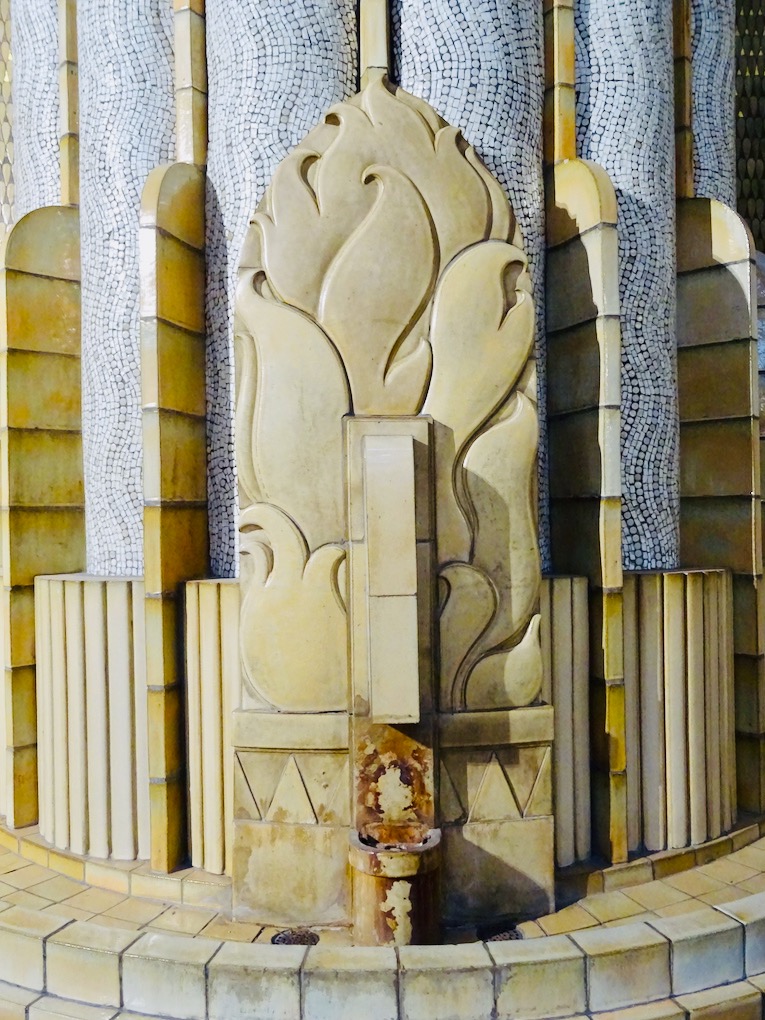

The hall is organized around the central well from which one dominates a fountain made up of a sphere covered with mosaics. It is there to remind us that the water of Aix-les-Bains comes from the earth’s depths where it has drawn its thermal qualities.
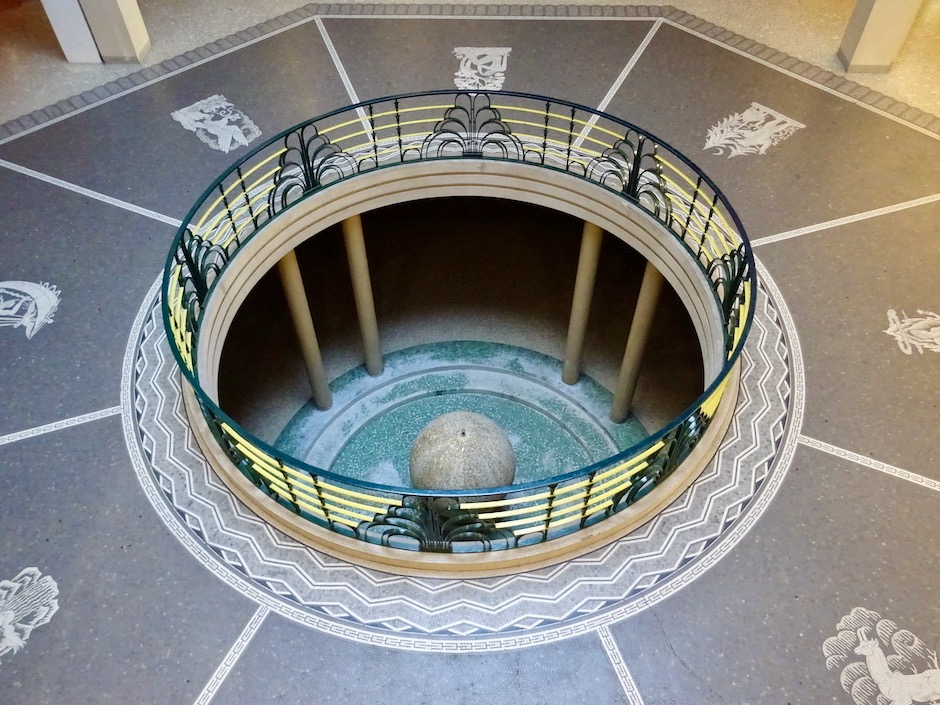

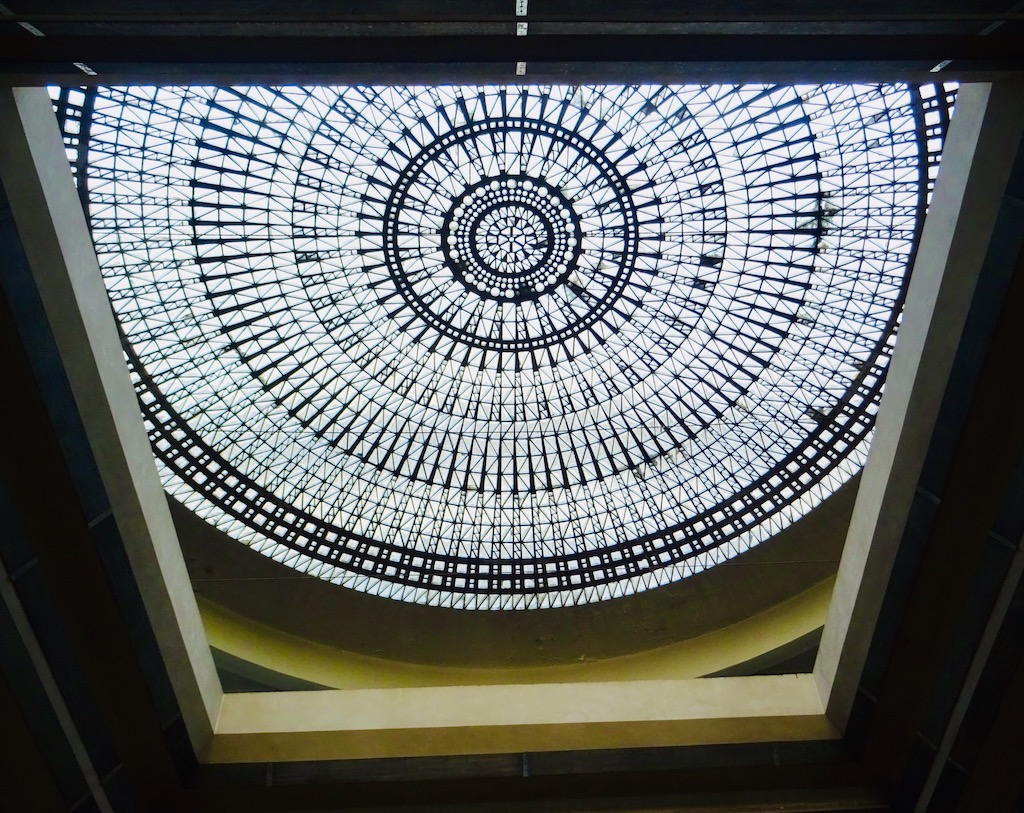

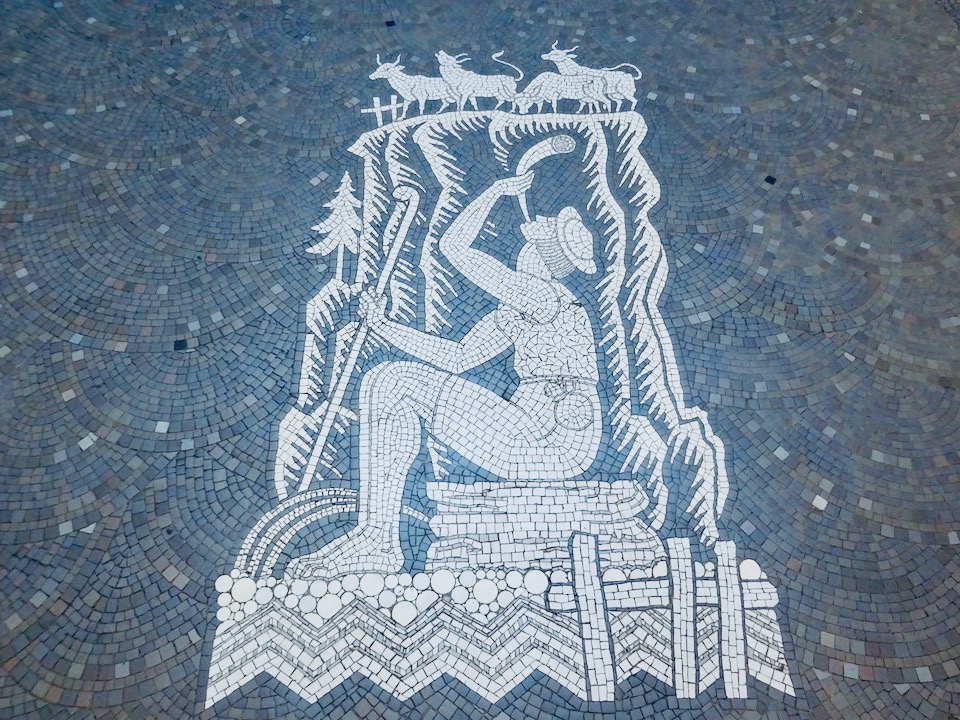

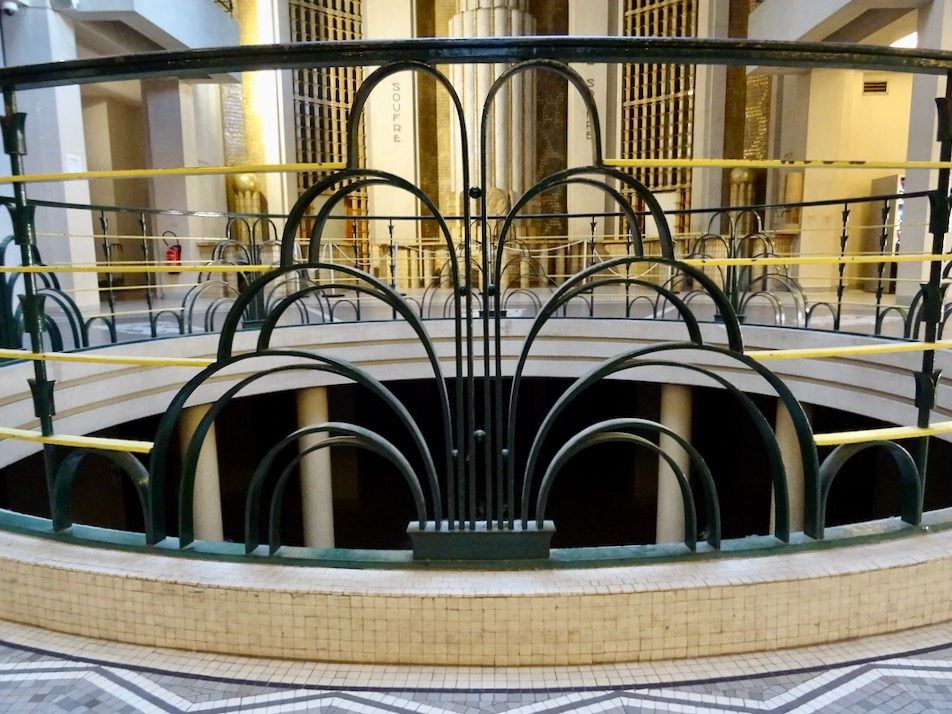

If we pay attention to the ironwork guardrails surrounding the fountain, we find the shape of the stylized water jets representing Aix-les-Bains.
But before going any further, we need to learn a little more about hydrotherapy in Aix-les-Bains. Indeed, it is the development of this activity that has made the city what it is today.
Aix-les-Bains and hydrotherapy
The construction of the first thermal establishment was ordered in the 18th Century by the King of Sardinia, Victor Amédée III.
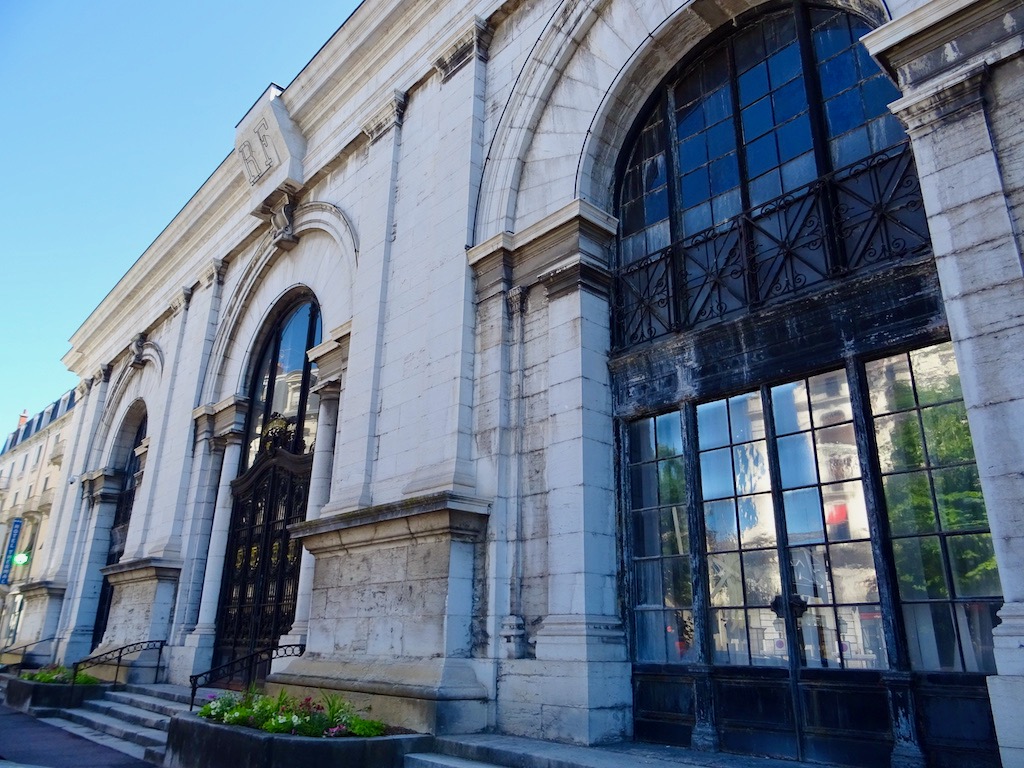

Hydrotherapy was then in fashion, and Aix-les-Bains took advantage of this trend. Many personalities came for treatment here, including the Bonaparte family. The first hotel infrastructures were created, and the number of patients tripled in 6 years and reached 1,200 in 1808. The city then decided to embellish itself.
Savoy’s annexation to France in 1860 also allowed a new boom in hydrotherapy by removing customs difficulties. Palaces and holiday homes were then built to accommodate the wealthy and foreigners.
Aix-les-Bains became the prestigious resort city where all the celebrities of the time mingled. Its nickname: “the resort of the queens and the queen of the resorts.”
Queen Victoria and Aix-les-Bains
But as many like to say, the queen of Aix-les-Bains is Queen Victoria.


Between 1885 and 1890, she came under the title of “Countess of Balmoral.”
In 1885 it was to accompany her daughter for treatment, but it was for fun for the other two times.
She, who was so austere, liked to stay in this famous frivolous city whose atmosphere of luxury and glitter she loved. English people, surprised by this enthusiasm, landed in Aix-les-Bains in the footsteps of their queen.
Buildings still bear her name today, and English sports such as rowing, golf, tennis, and horse racing that appeared under her leadership survive her today.
The end of the heyday of Aix-les-Bains
Following the two world wars, the image of hydrotherapy changed. It became less elitist and more accessible. Palaces and luxury hotels no longer had their clientele. Between 1950 and 1965, they closed one after the other to be converted into apartments.
We can still see and imagine the splendor of Aix-les-Bains during this heyday. Many of the magnificent buildings erected during this period are admirably restored and maintained.
The palaces of Aix-les-Bains
The most impressive was the prestigious Royal-Splendide-Excelsior complex, built above the Ancient Baths, on the hillside. Today these three buildings became dwellings.
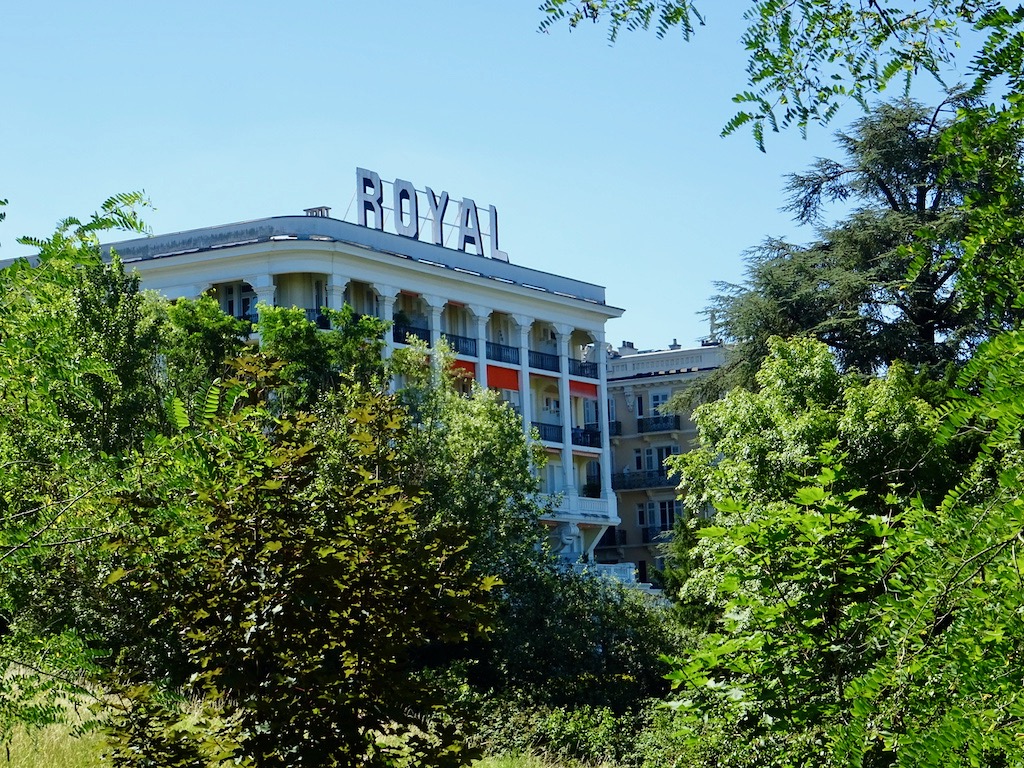

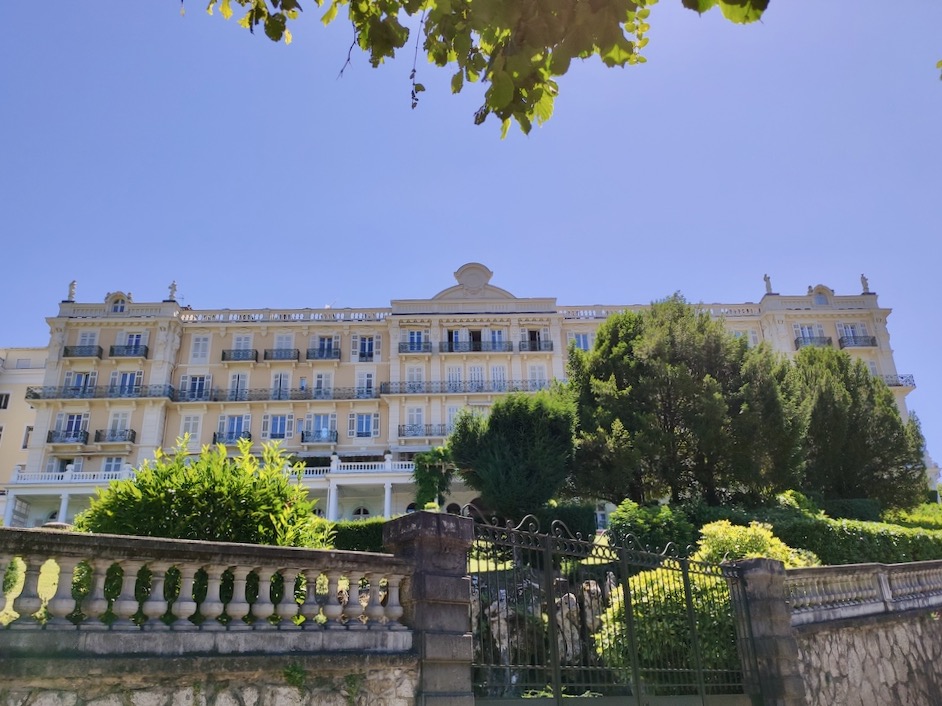

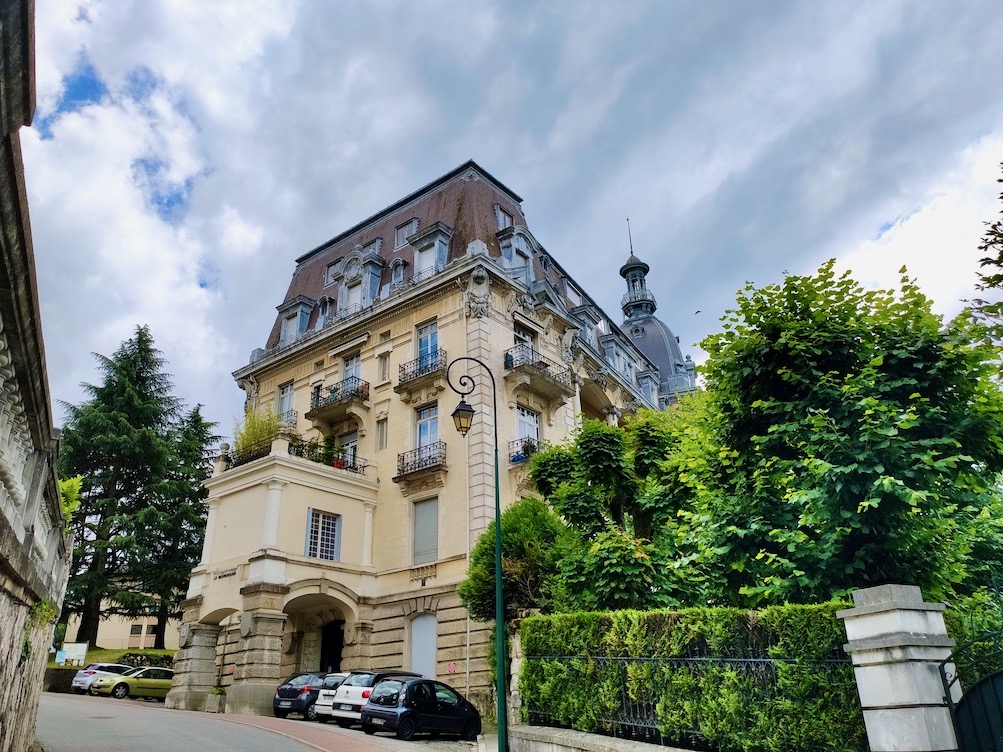

If you walk along rue George 1er until the Excelsior, you will see one part of the corridor on the Splendid side that connected the two buildings, passing over the road.
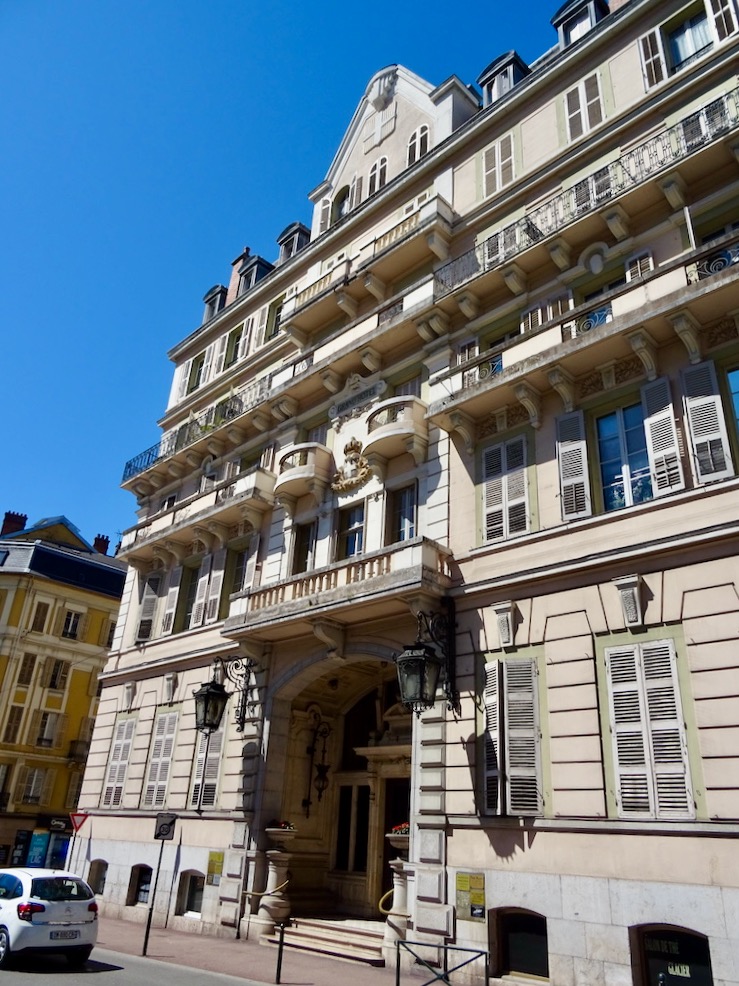

Grand Hôtel international
The Grand Hôtel international had been the flagship of the city’s hotels before it closed in 1990. Following two fires, only the facades have been preserved.
In the early 2000s, it was restored and converted into homes.
Hôtel Beau-Site
The first large hotel was built between 1881 and 1883. Like many of its peers, it has an annex, the “Villa Beau-Site,“ built in 1887. It was sold as apartments from 1967.
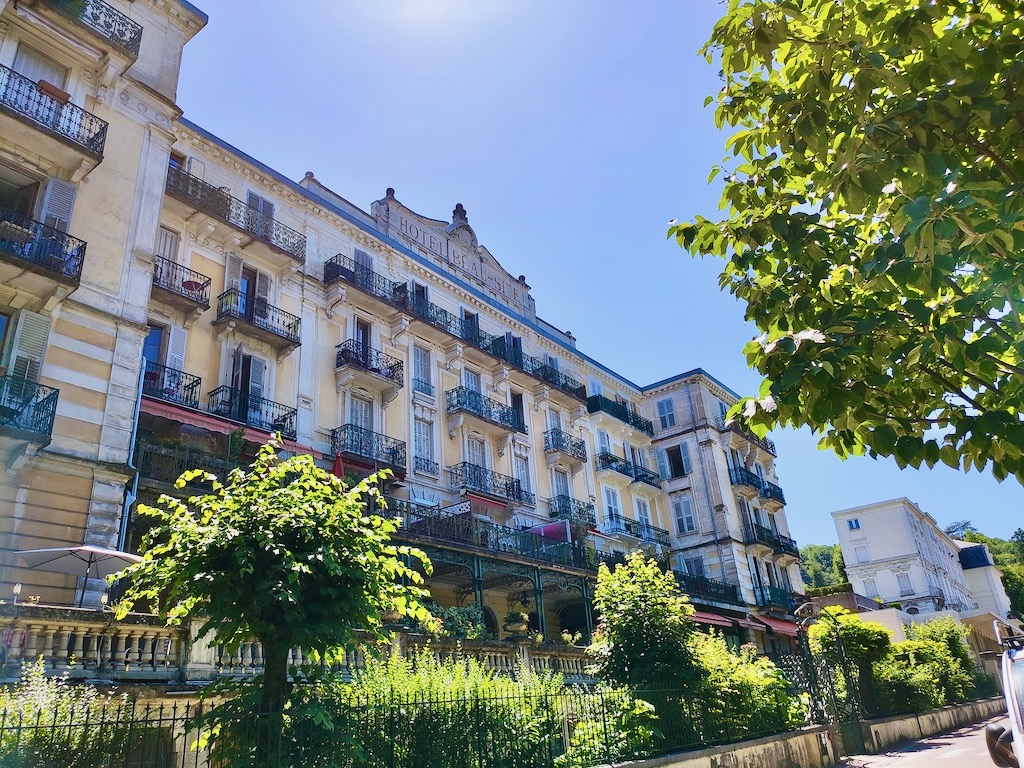

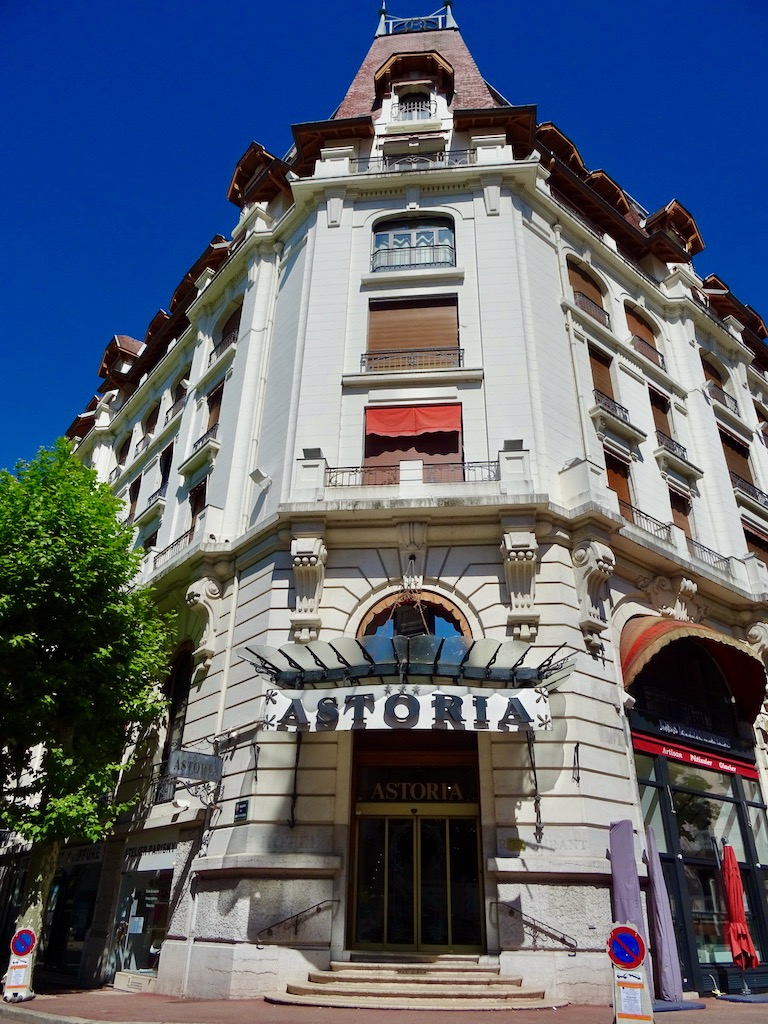

Hôtel Astoria
One of the few palaces that still work as a hotel.
It was completely renovated in 1992 with the School of Fine Art of Chambéry, a neighboring city, which redesigned the dining room.
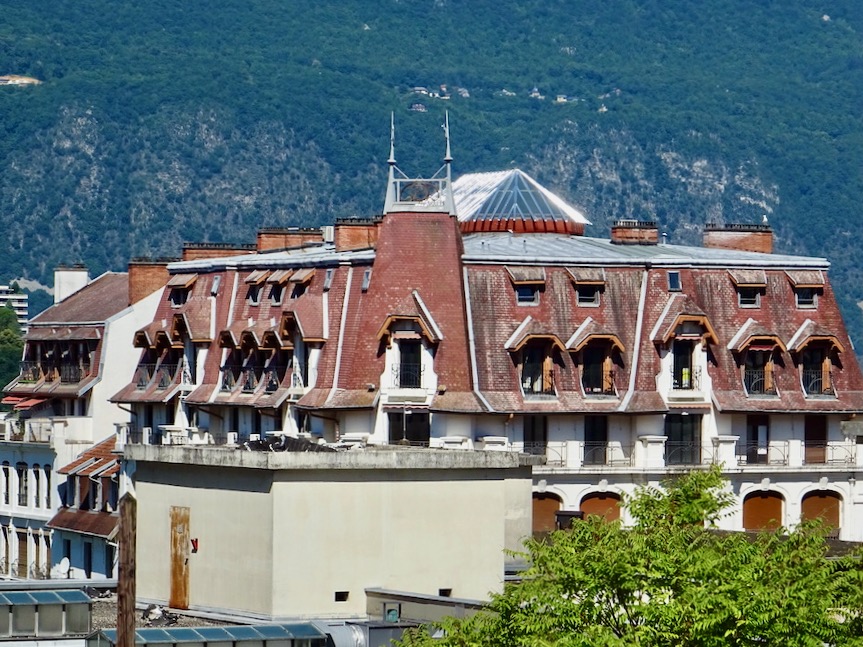

You can see its roof made of long sloping sides with dormers and a polygonal canopy at the top if you look up.
Le Panoramic
Its history is different from that of other palaces. In 1929, when its construction began, it was to become the largest and most modern palaces. Unfortunately, the company that was supposed to finance it went bankrupt, and in 1931 it was sold under construction — change of plan. The facades will be preserved, but it will eventually be built as dwellings.
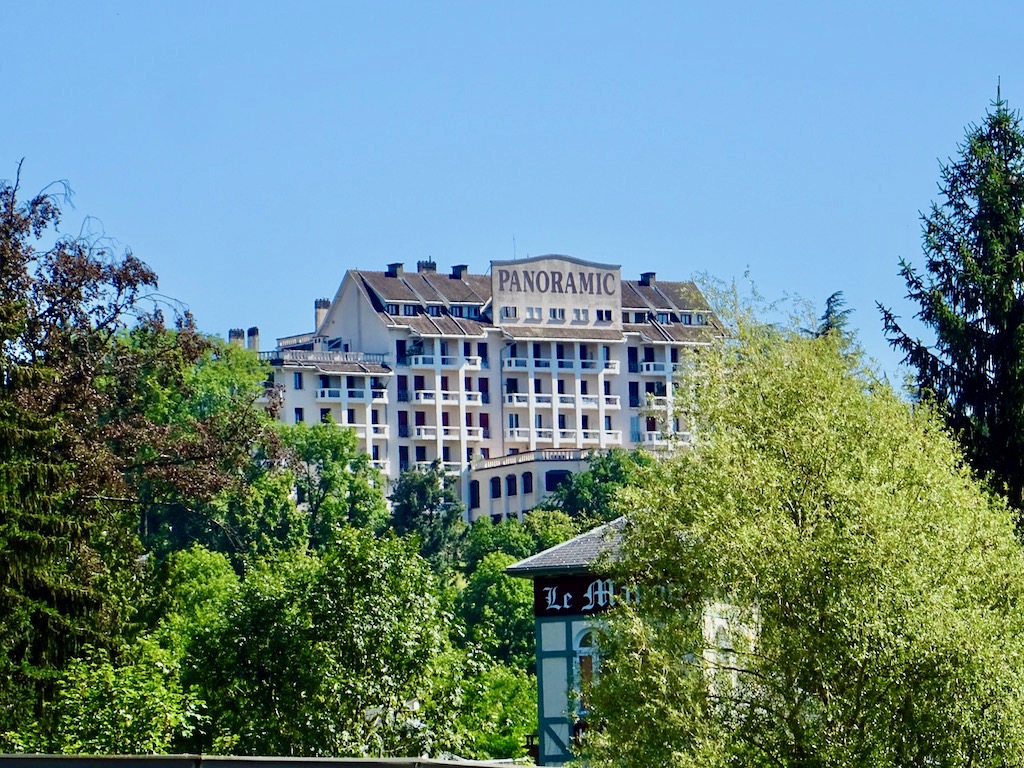

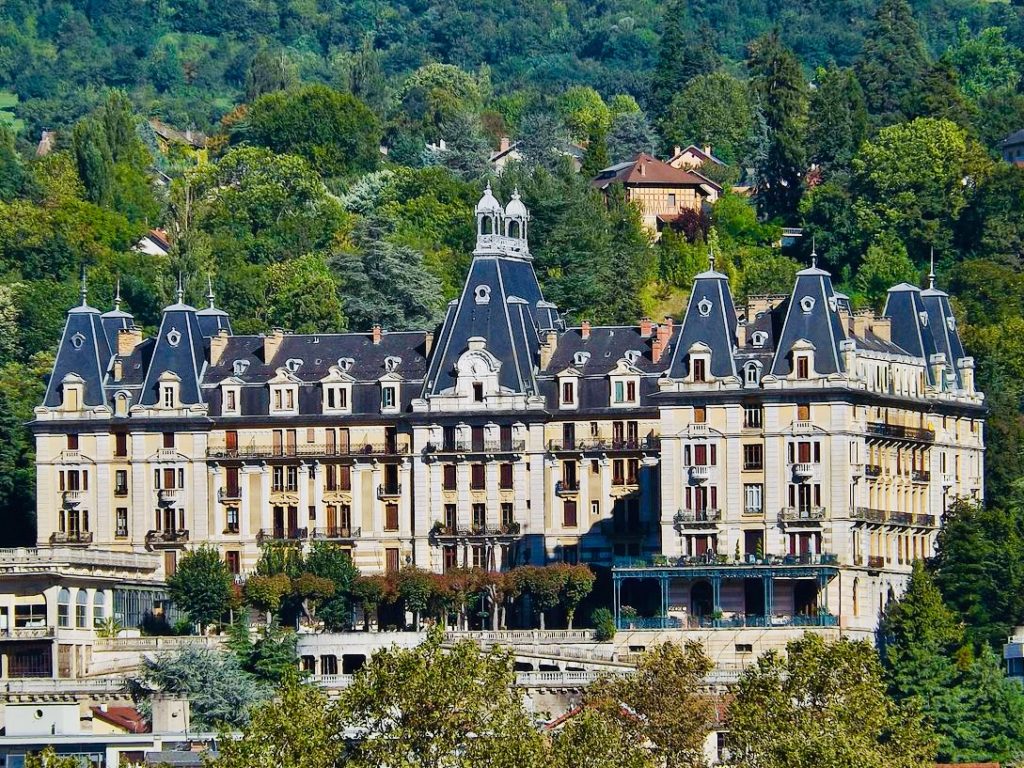

Hôtel Bernascon
Built between 1897 and 1900, it ceased its activity in 1956 and was sold in co-ownership in 1960.
The city made further improvements
Urban planners redesigned the city center and created neighborhoods by activities. The name of the squares of the city tells us the location of these different neighborhoods.: “Place du Marché,” “Place des Écoles,” “Place des Thermes,” “Place de l’Hotel de Ville.”
After having toured these prestigious buildings, it’s time to discover Aix-les-Bains.
The Town Hall and the thermal park
Like any spa town, Aix-les-Bains had to have a thermal park. Therefore, in 1866, the state bought the property from the Marquis d’Aix — a castle with its park — situated in the center of the town. The castle’s private garden became the thermal park, while the castle, handed over to the city, housed its town hall.
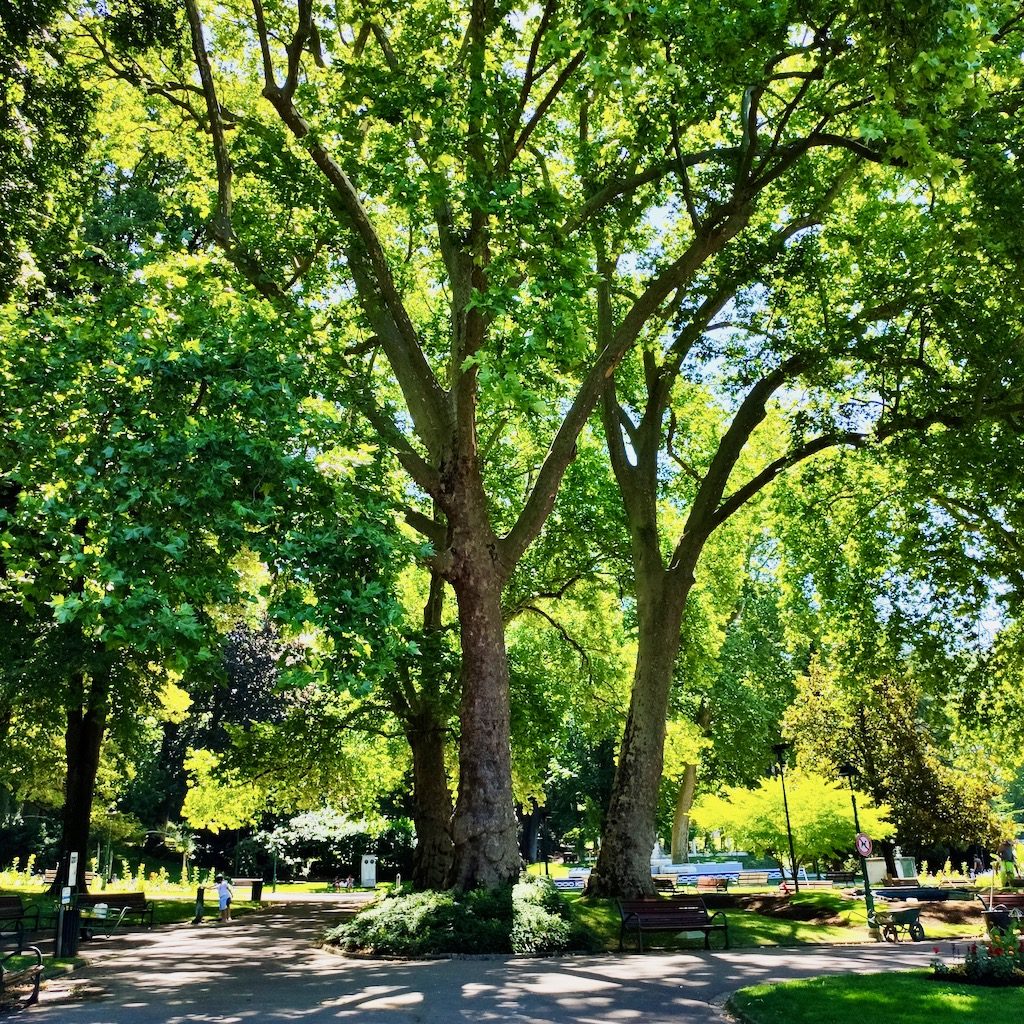

In 1868 the work of embellishment of the park began. They were completed a year later to open to the public.
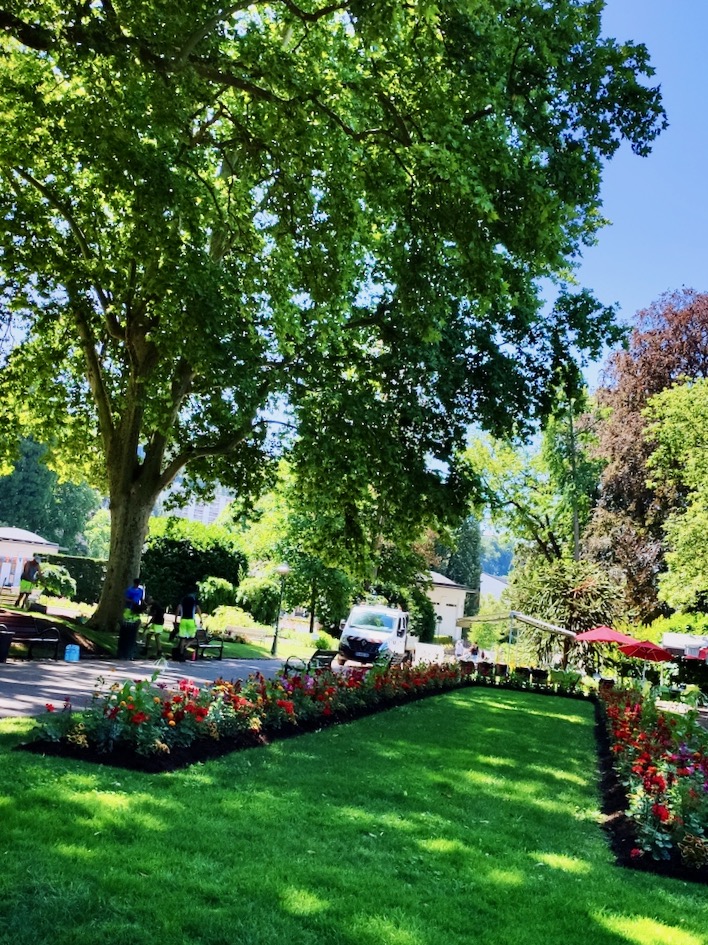

In 1953, the town decided to build an open-air theater, “Le théatre de Verdure.”
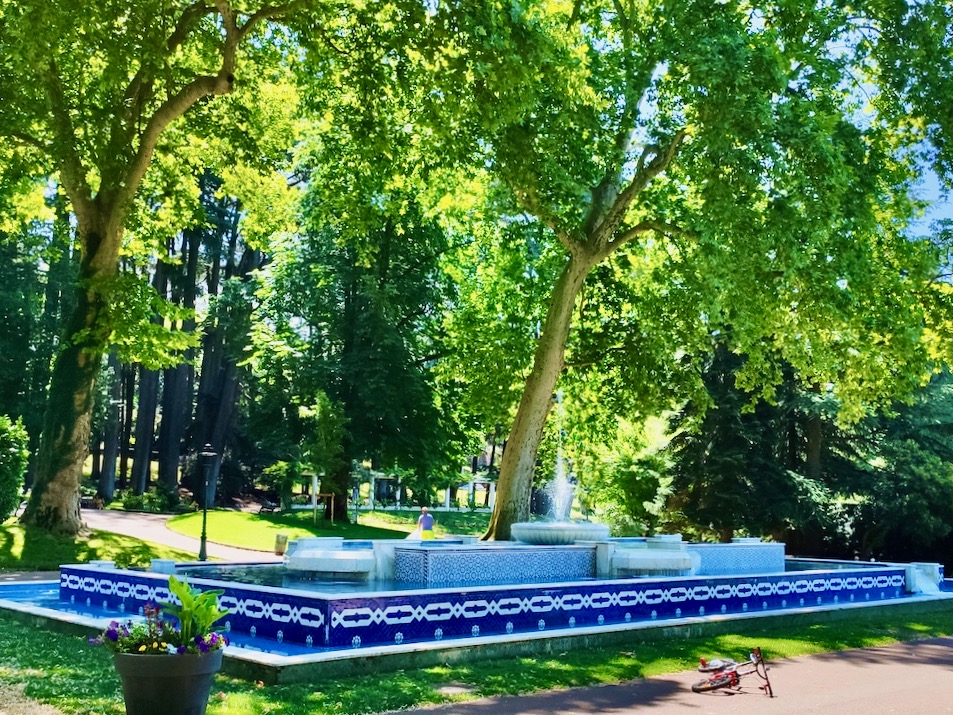

Since then, the only change was the construction of the Moroccan fountain in 2005 on the occasion of the fiftieth anniversary of the talks for the independence of Morocco, held in Aix-les-Bains in 1955.
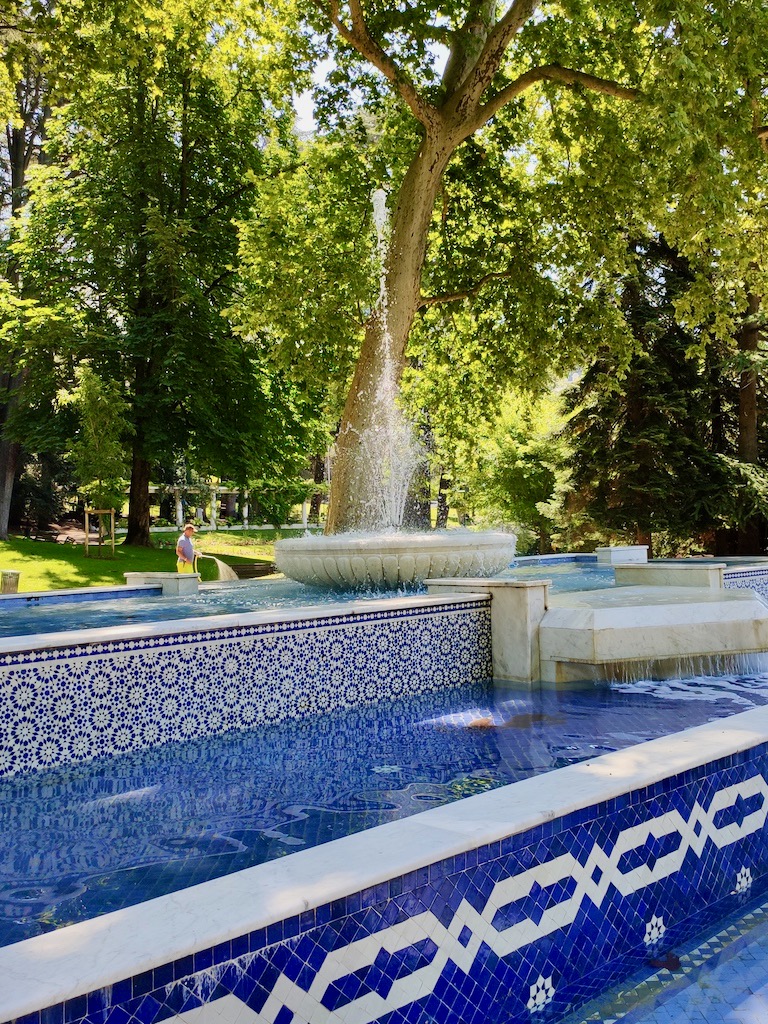

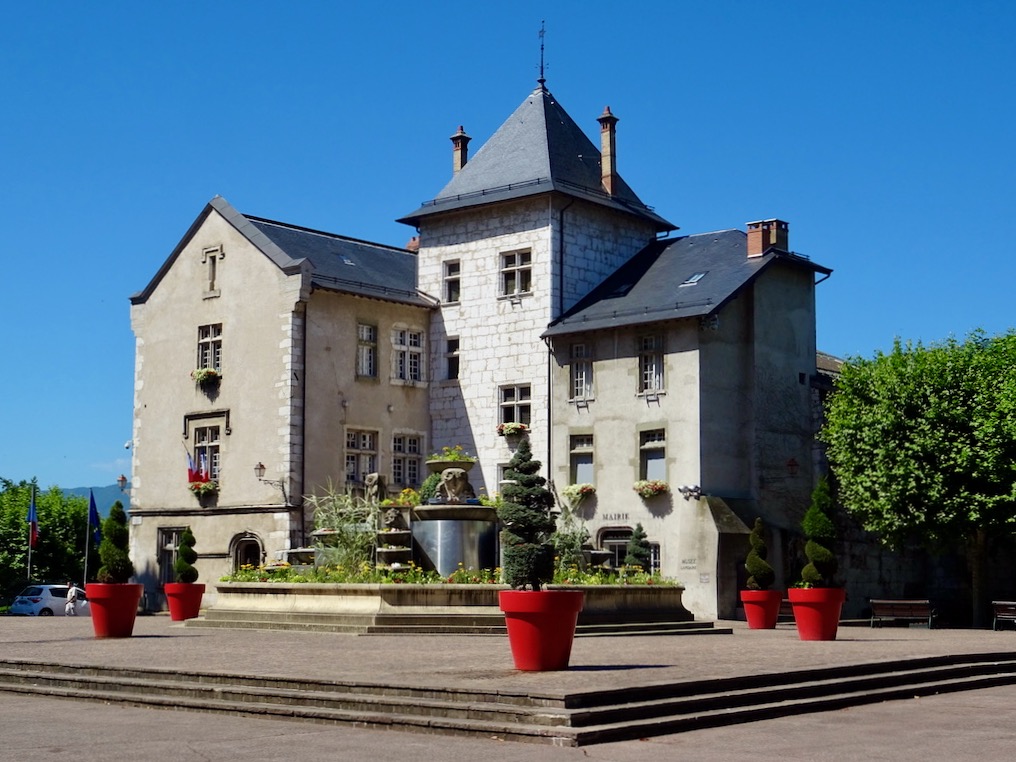

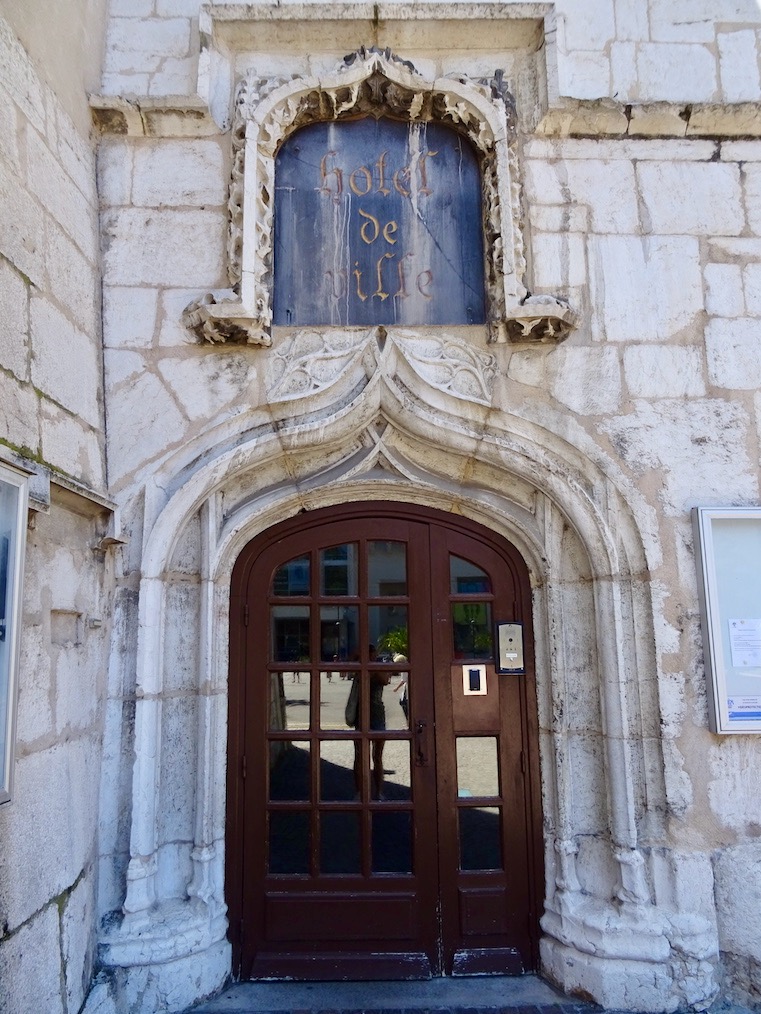

Diana Temple Square
Here we are in Diana Temple Square. There is a beautiful fountain, a stage, and during the summer months, one can come, listen to music, and dance in the open air.
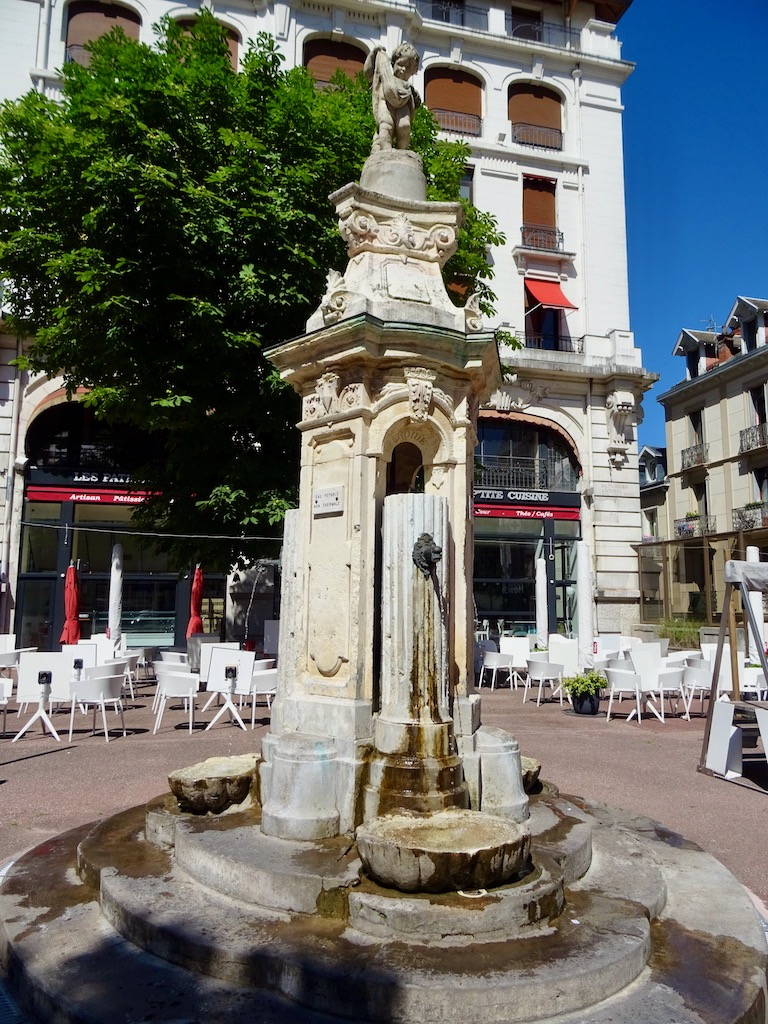

The square also has its history and monuments. Behind the city hall is the “Diana Temple.” One can only see the exterior walls. This Roman building was incorporated into the castle during its construction.
There are very few archives on this monument that would allow knowing more about its history. It was undoubtedly a Temple, as its architecture seems to prove. According to medieval lore, the temple had to be dedicated to Diana or a spring deity.
It now houses the Archaeological Museum.
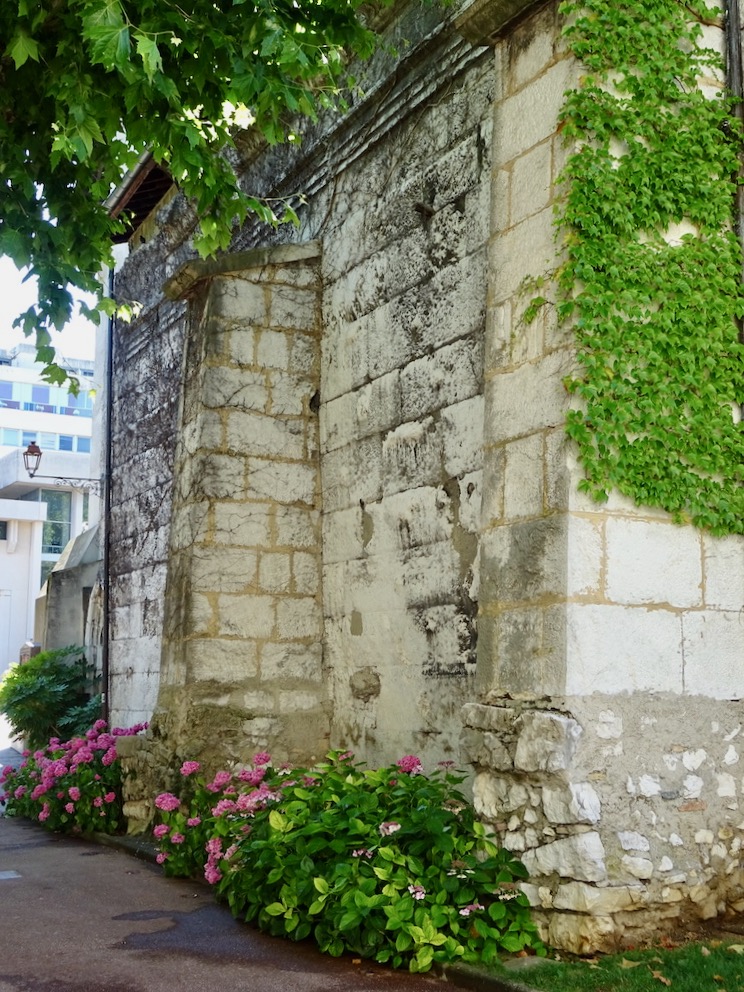

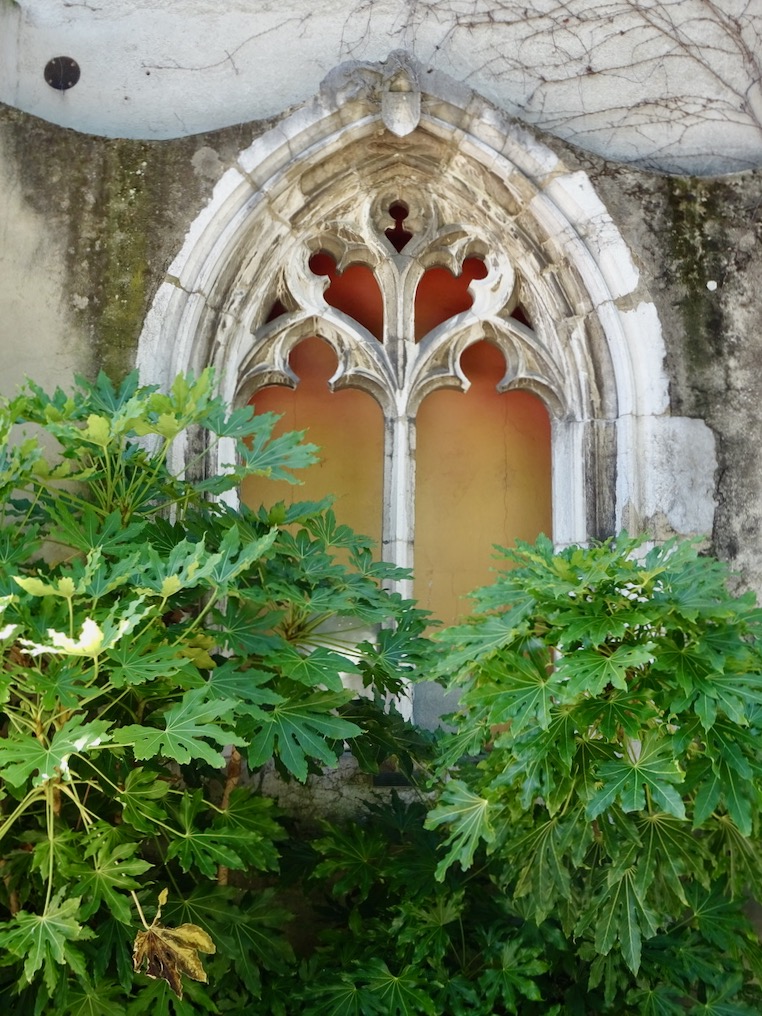

The Arch of Campanus
At the other end of the square, the funerary monument estimated to be from the 2nd Century is the city’s oldest monument. Nine meters high, it consists of an arcade surmounted by a cornice and a frieze. But nobody knows for sure its exact function.
Some say it symbolizes the passage to the afterlife.
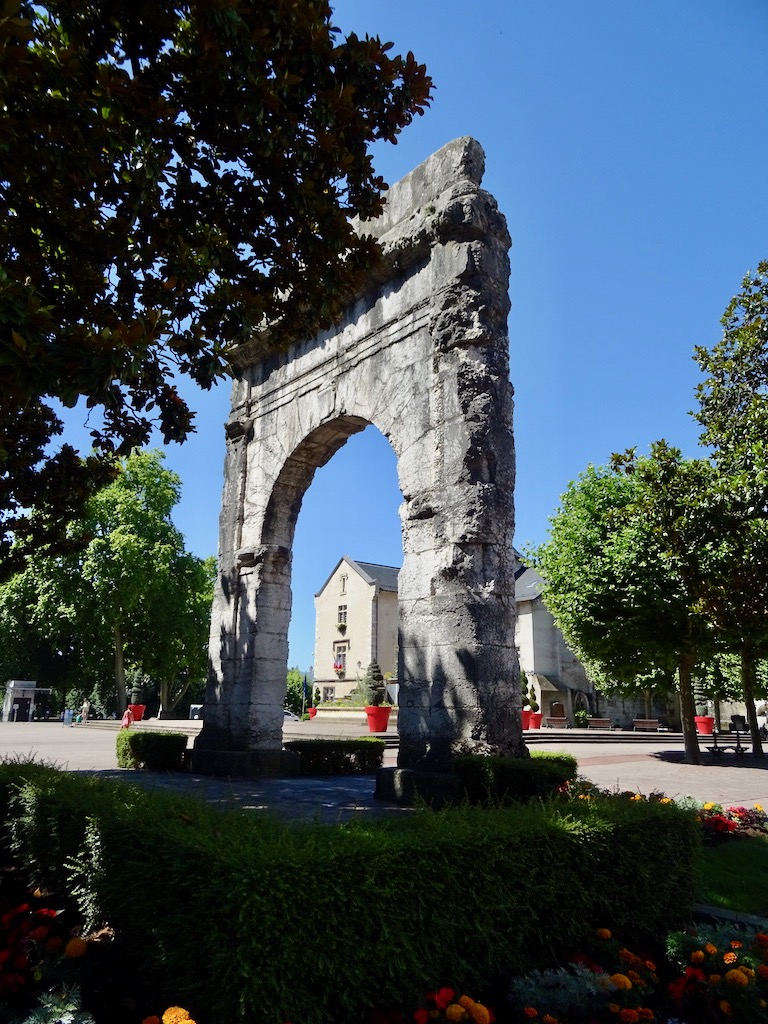

We left the square and took Davat street to admire the church built in a Roman-Byzantine style. The city moved it here during the embellishment work of the city in the 19th Century.
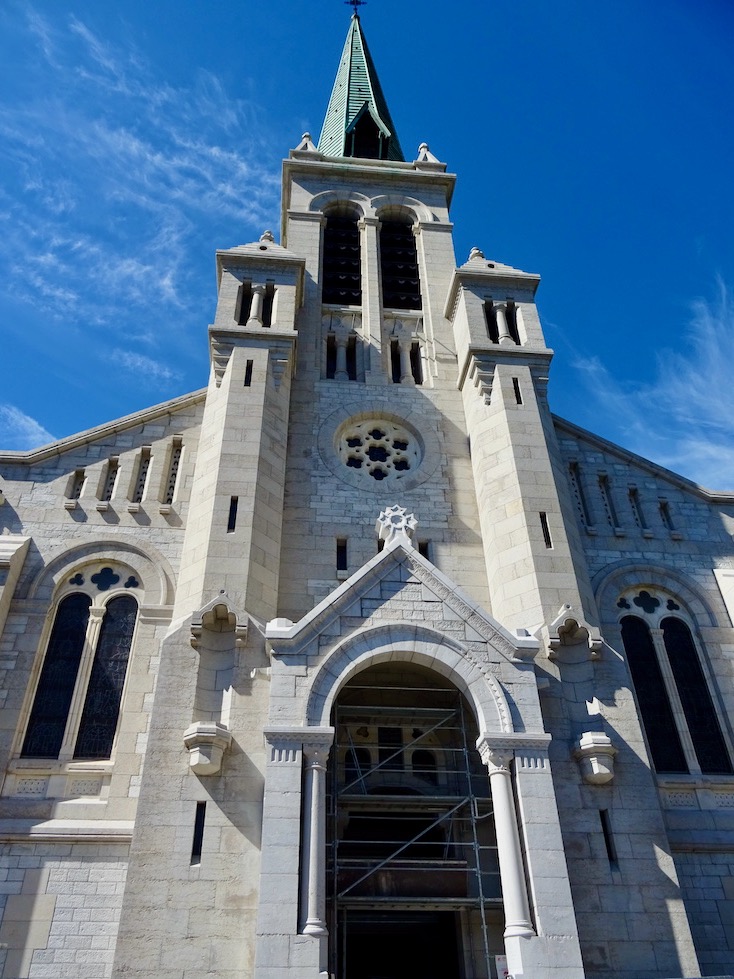

We walked along the church up “Boulevard des Côtes” to reach the Faure Museum..
Founded in 1949 in a “Belle Époque” villa, it has the second collection of works by Rodin in France and the second one of impressionist paintings in France.
There are also souvenirs from the stays of the poet Alphonse de Lamartine, including the reconstruction of his room at the “Perrier pension,” where he lived and met Julie Charles.
The notoriety of Aix-les-Bains in the French landscape is linked to the poet. To know more: Aix-les-Bains, Bourget lake, and Lamartine.
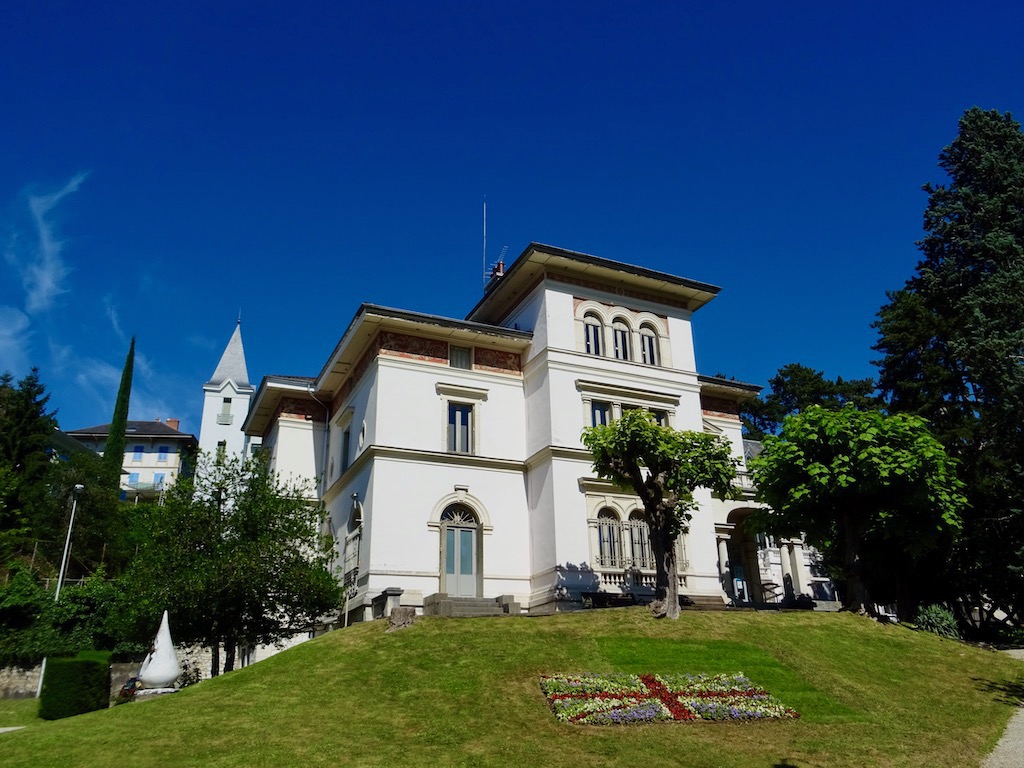

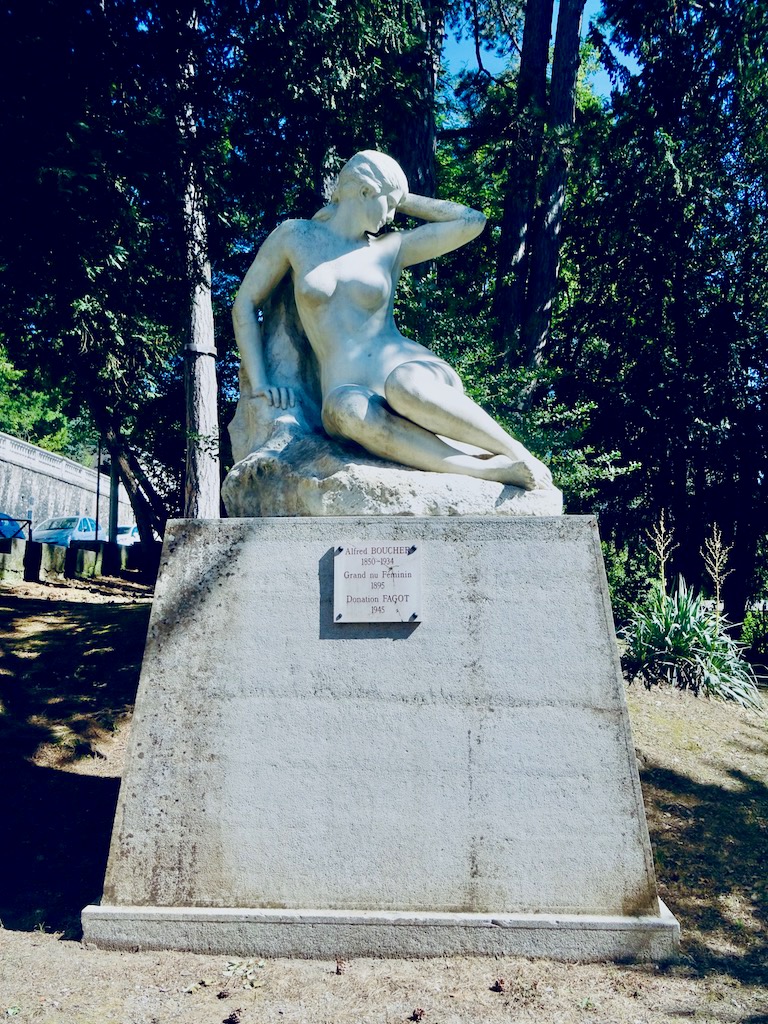

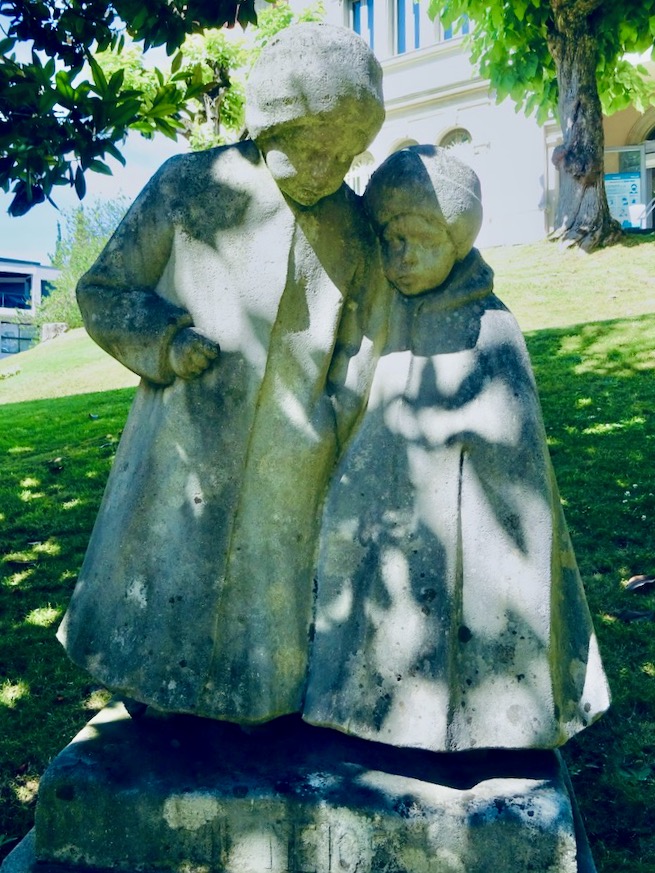

We went down to the main street, “Avenue de Genève,” towards the war memorial. We took one of the city’s pedestrian alleyways and its many stairs. They were built when palaces and holiday homes flourished on the hillsides.
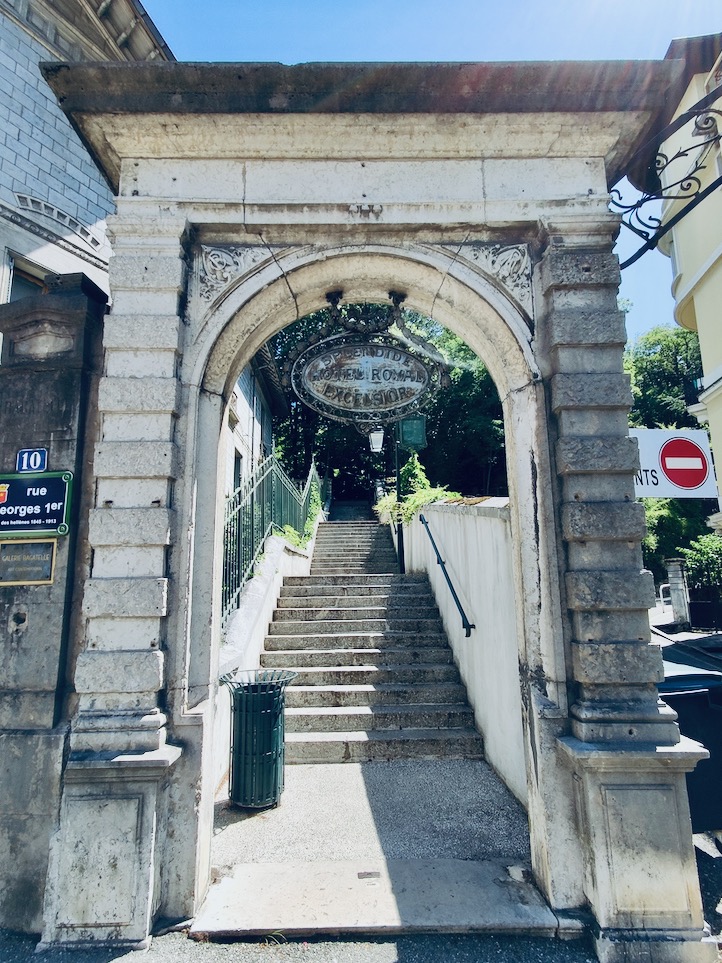

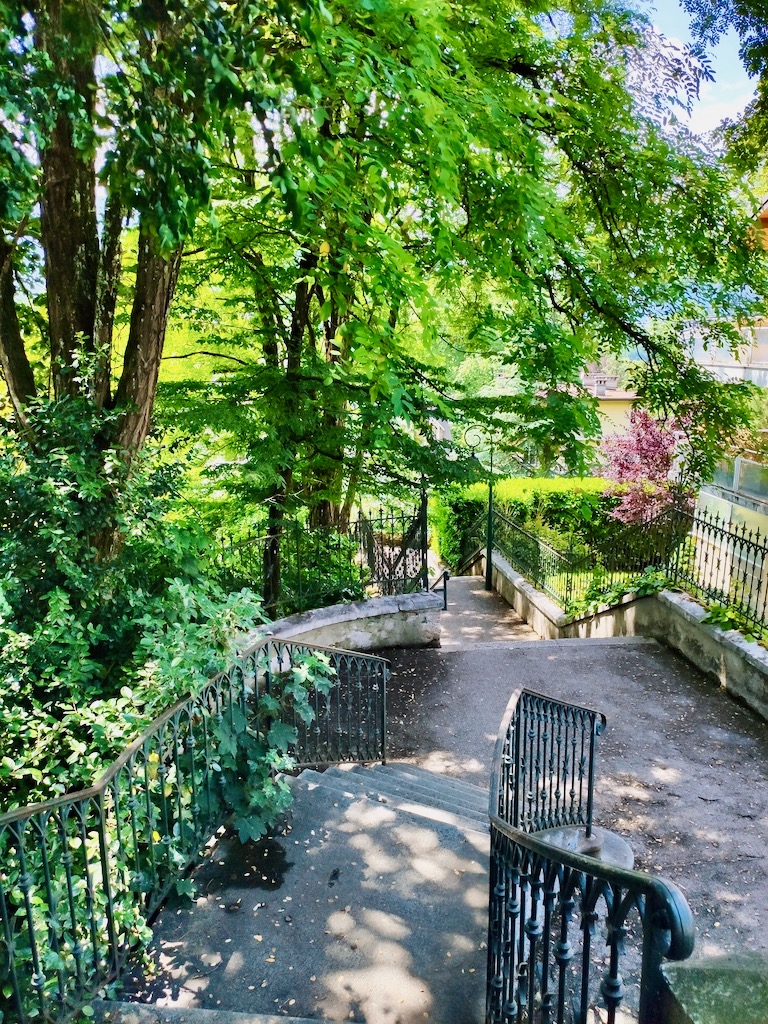

The war memorial
This monument commemorates the memory of the soldiers who died during World War I.
At the top, five soldiers brandish their weapons as a sign of victory. At the bottom of the column, high reliefs evoke four Armed Forces: Artillery, air force, infantry, and navy. We can see two other groups of statues. The first one represents two women symbolizing “Alsace” and “Lorraine,” two French departments, the second one a mother in Savoyard costume holding her dying son in her arms.
At the base, two soldiers, almost completely buried, lie on the land they defended.
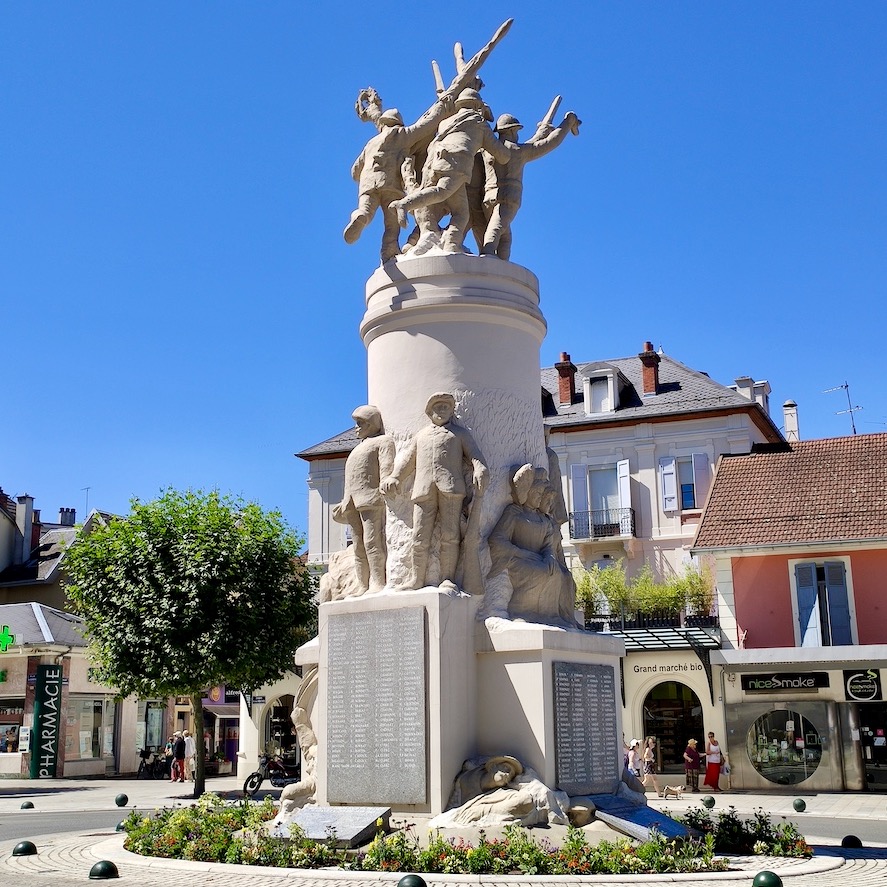

After admiring this work, we went up “Avenue de Genève” and continued on “Rue du Casino” to get to the Casino.
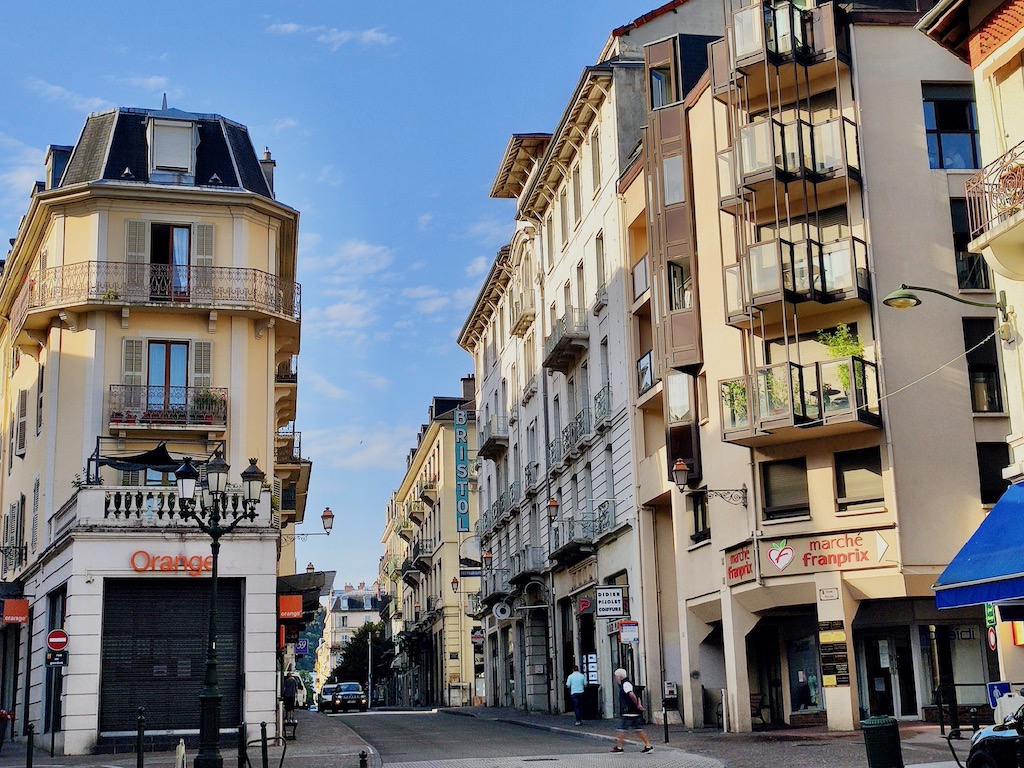

The Grand Cercle Casino
From the 18th Century, the city wanted to create a meeting place for foreign guests. In 1824, they created the “Société du Cercle.” It then leased the castle of the Marquis d’Aix (the current city hall) to make entertainment rooms and used the Diana Temple as a theater. At the term of the lease, the construction of a new building for the casino was decided. Its inauguration took place in July 1850. Until 1906, the building was constantly enlarged and embellished.
You absolutely have to take the time to enter and visit this magnificent building. The restoration done in 1980 has returned it to its former glory, and it’s a real throwback to the past as soon as you walk through the doors.
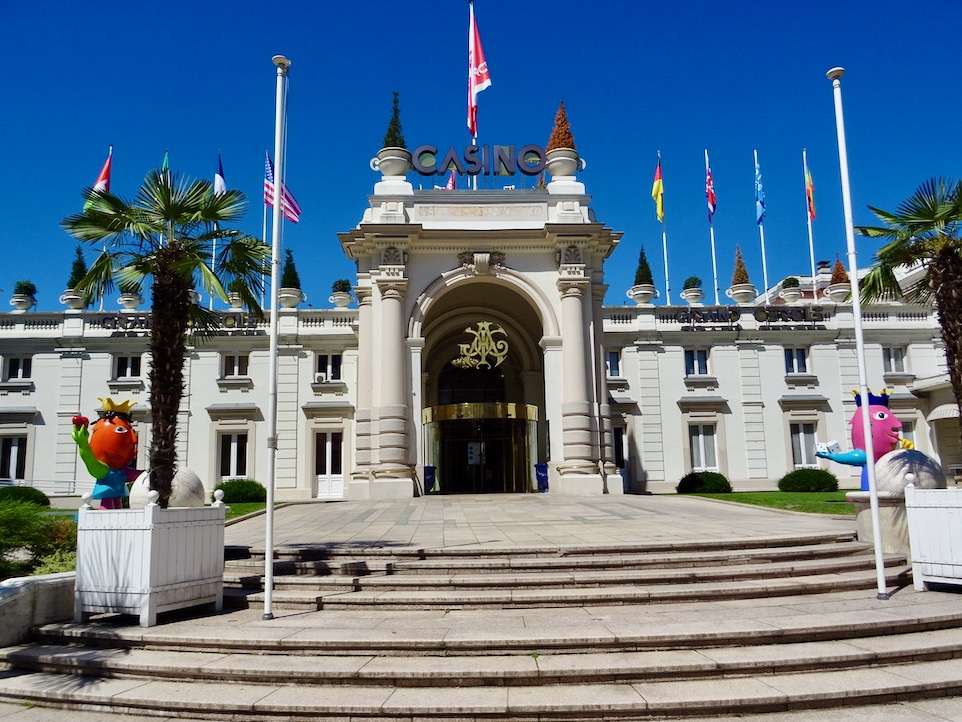

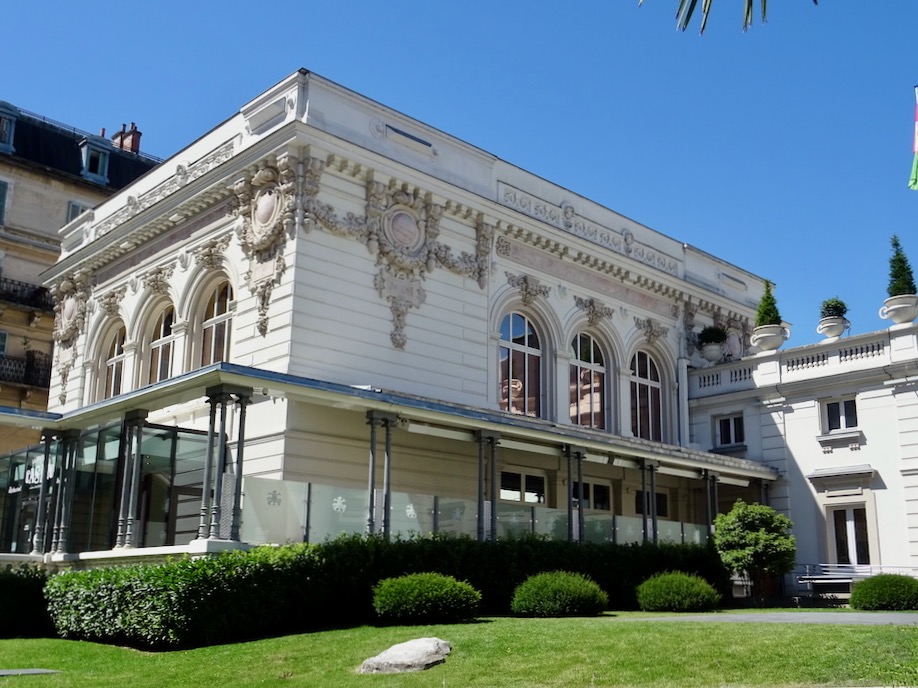

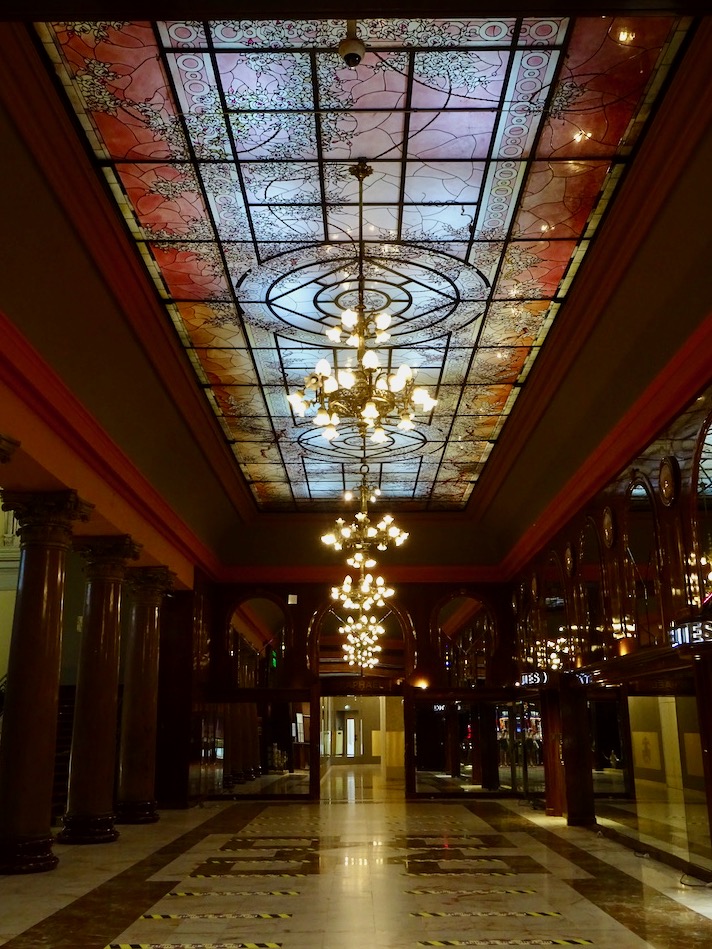

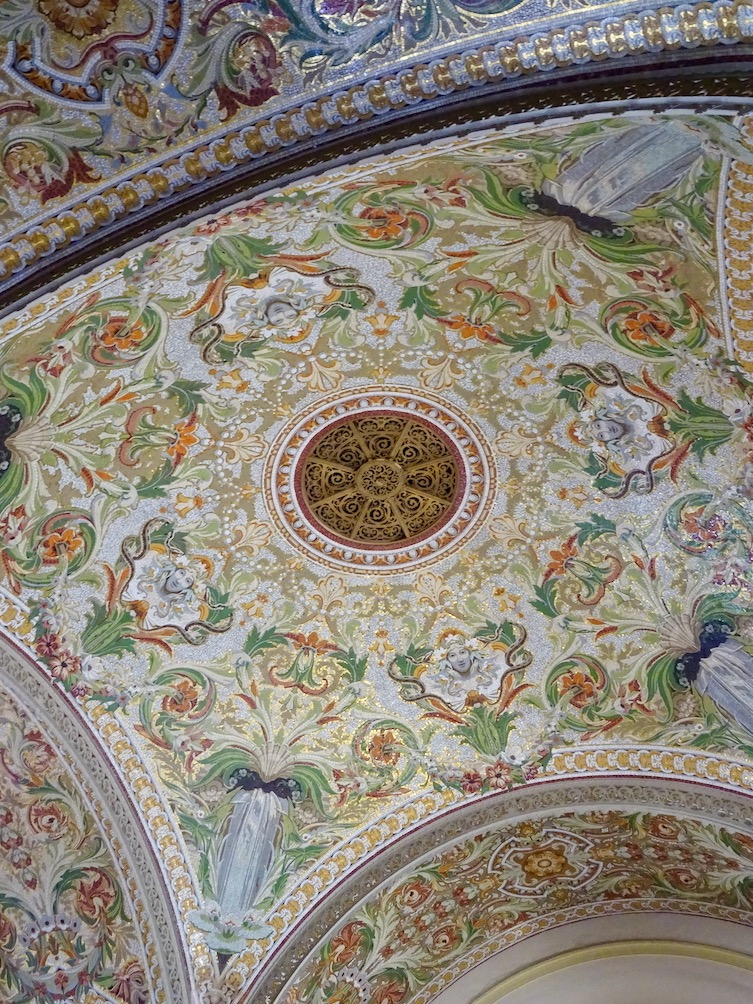

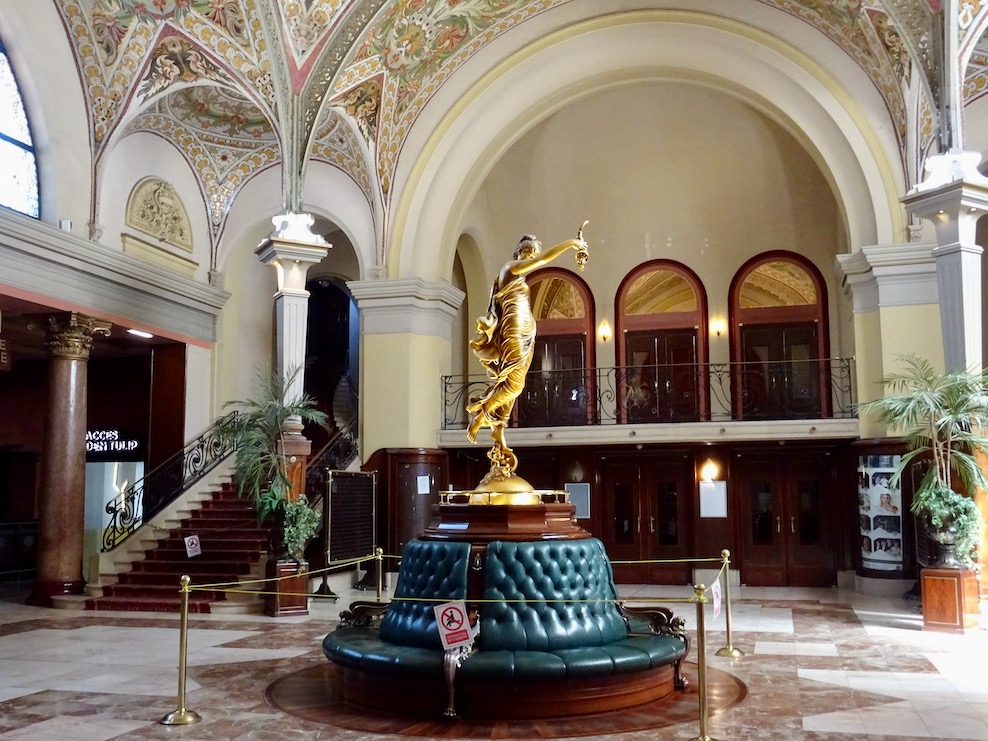

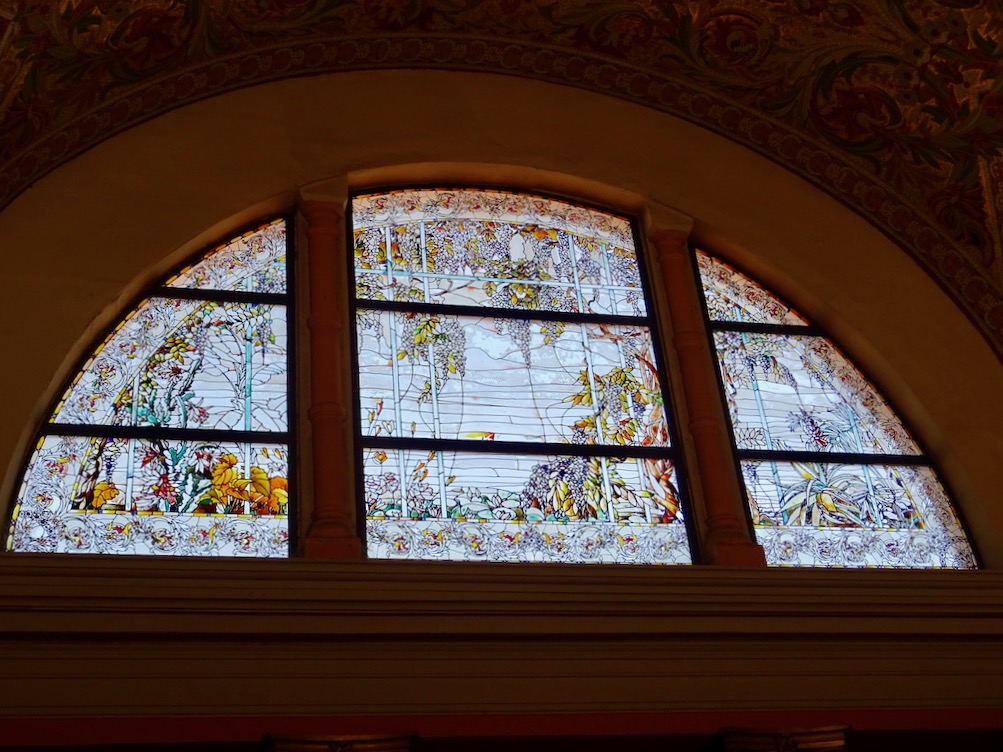

Our visit was coming to an end. We returned to the Diana Temple square, taking the pedestrian part of Avenue de Genève.
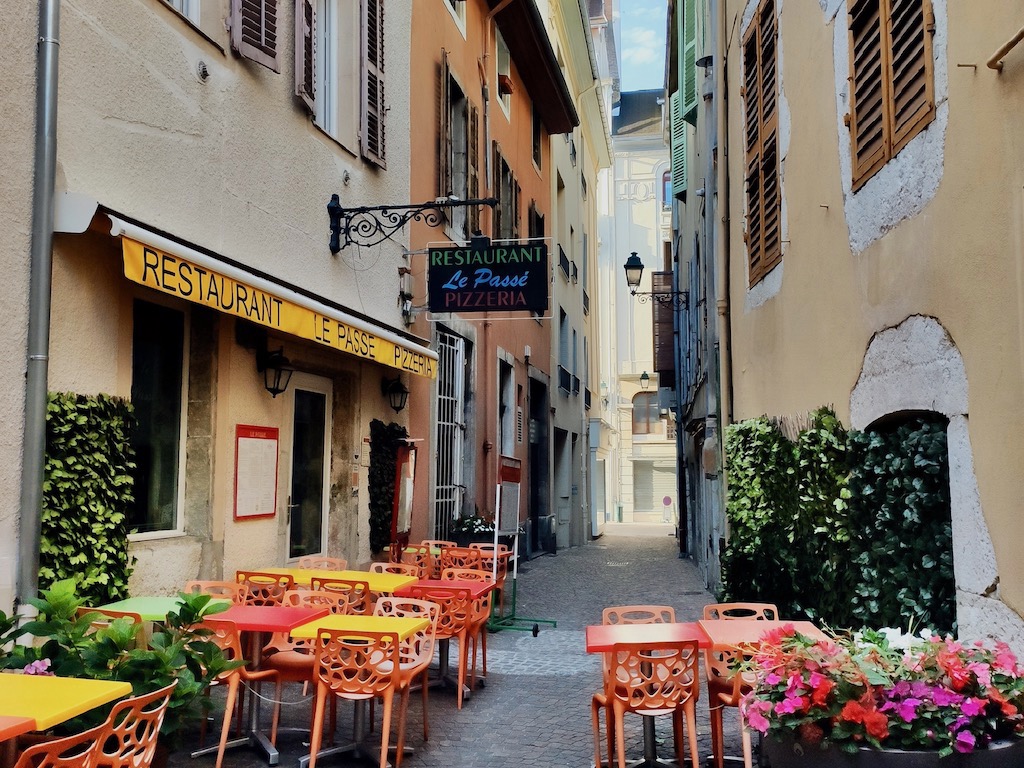

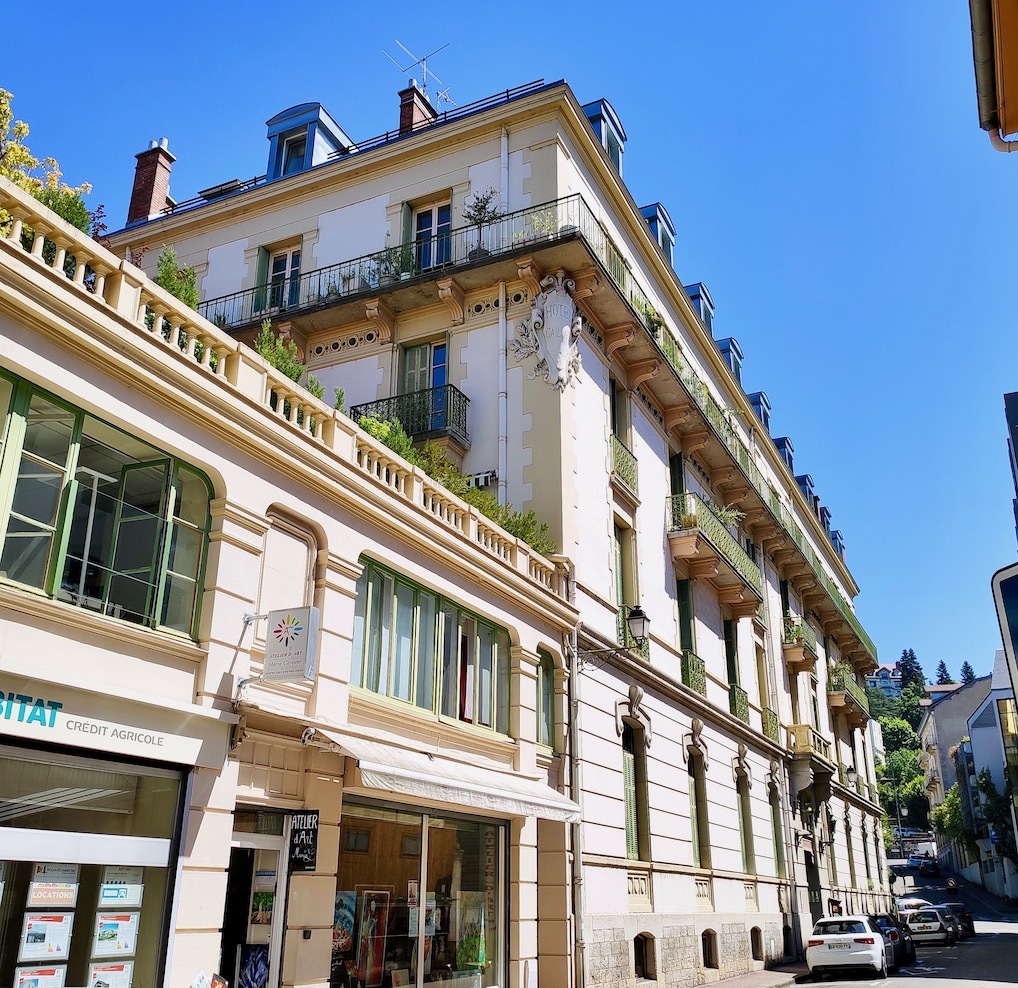

We crossed Carnot Square with its terraces.
A charming place to enjoy an ice cream or, and I recommend it, brunch at “La Balançoire by La Bicyclette Rose.” The best brunch I have ever had is served here with a smile.
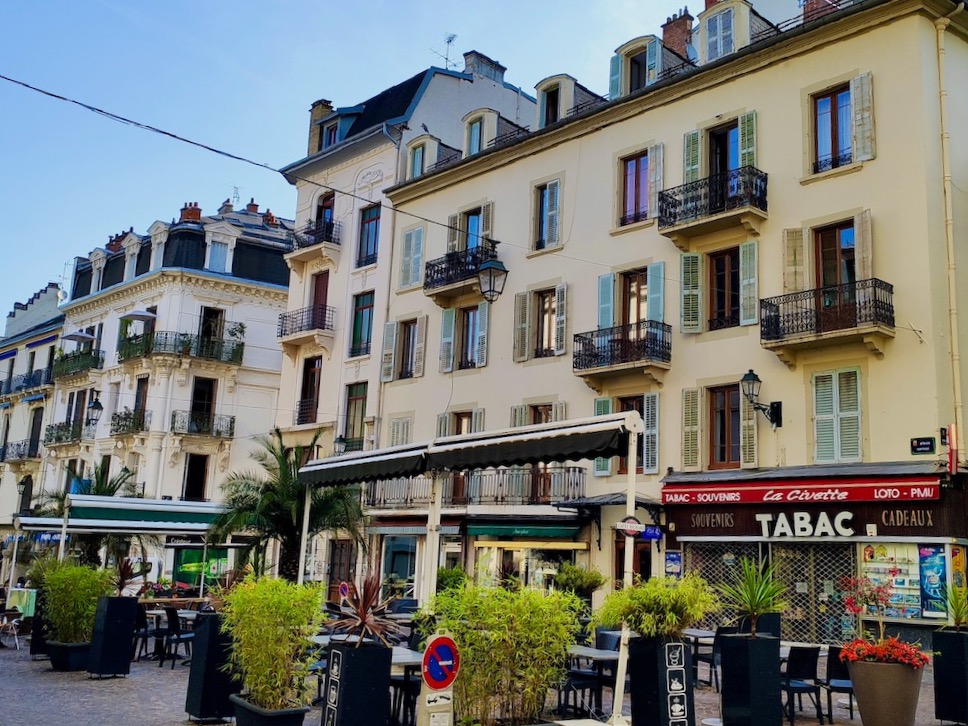

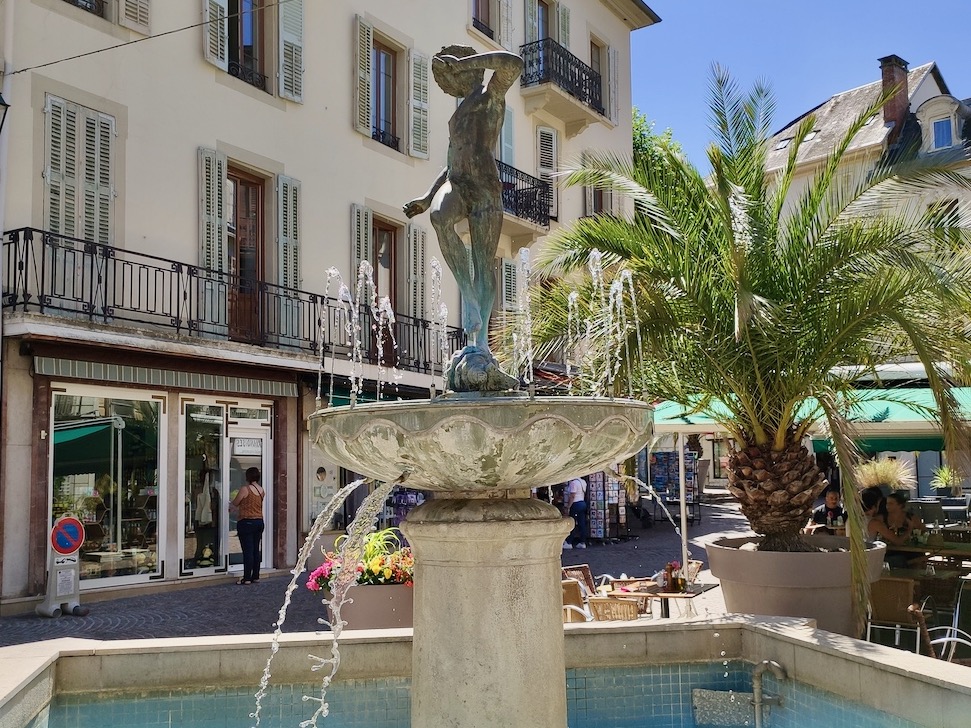

It’s the end of the visit. There are, however, so many magnificent buildings that we did not see and details in the architecture that confirms the luxury in which the city has grown. And it’s a feast for the eyes.
To conclude
A city whose architecture and beauty speak for themselves. Aix-les-Bains is an ideal touristic city, and the numerous activities prove it. After this visit, which taught us a lot, we enjoyed nature and the surrounding lake. As a fan of outdoor activities, I was spoiled for choice. But I started with ice cream on the lake’s shores. 😊

Wow, what a beautiful town! I love the art deco style, the intricate tile work and pretty fountains. Funny how we can live in a place and never properly explore it. That’s how I feel about Vancouver!
We take time to travel and visit, but never close to home. It’s pleasant to be able to talk about the history of our own town. And people like it.
I would absolutely love to visit here!! I think maybe because my body is stiff and sore from hiking that I’d love a good thermal bath. Plus Art Deco, mosaics and stain glass… this is a dream come true!!
Being pampered after a morning of hiking! The best program for a beautiful day.
Looks like a really lovely stop while in the area. A bit of relaxation and some really pretty buildings. Isn’t it funny how sometimes we forget to explore our own backyard.
A nice place to visit indeed. I will plan more visits around my place in France each time I will be back there. I really enjoyed discovering my town, and there is a lot to do in its surroundings.